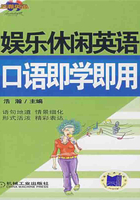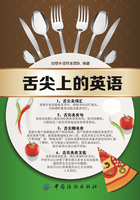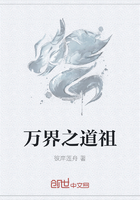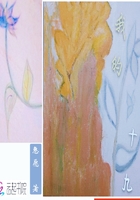Life is like a dream
《浮士德博士的悲剧》
Dr. Faustus
[英]克里斯托夫·马洛(Christopher Marlowe)
《浮士德博士的悲剧》取材于德国传奇。浮士德是一位伟大的学者,渴求各领域的知识。他对中世纪一成不变的学科深感厌恶,开始转向一种黑魔法的研究。通过咒语他结识了魔鬼的仆从。浮士德与魔鬼签订了协议,他将自己的灵魂卖给魔鬼,作为回报,魔鬼则要在此后的24年中满足浮士德所有求知的愿望。在魔鬼的帮助下,他尽情施展魔法,见到了教皇、亚历山大大帝,以及绝代佳人希腊王后海伦。与此同时,浮士德经历了内心的矛盾与斗争。以下选段出自该剧的第一幕,是有关与魔鬼签协议的情节。
ACT 1 SCENE 3
Faust. Now that the gloomy shadow of the night,
Longing to view Orion's drizzling look,
Leaps from the antarctic world unto the sky
And dims the welkin with her pitchy breath.
Faustus, begin thine incantations
And try if devils will obey thy hest,
Seeing thou has prayed and sacrificed to them.
Within this circle is Jehovah's name
[He draws the circle on the ground.]
Forward and backward anagrammatized,
The breviated names of holy saints,
Figures of every adjunct to the heavens
And characters of signs and erring stars,
By which the spirits are enforced to rise.
Then fear not, Faustus, but be resolute
And try the uttermost magic can perform.
[Enter MEPHISTOPHILIS in the shape of a dragon.]
I charge thee to return and change thy shape;
Thou art too ugly to attend on me.
Go, and return an old Franciscan friar;
That holy shape becomes a devil best.[Exit Meph.]
I see there's virtue in my heavenly words:
Who would not be proficient in this art?
How pliant is this Mephistophilis,
Full of obedience and humility!
Such is the force of magic and my spells.
Now, Faustus, thou art conjurer laureate
That canst command great Mephistophilis:
Quin redis, Mephistophilis, fratris imagine!
[Re-enter Mephistophilis like a Friar.]
Meph. Now, Faustus, what wouldst thou have me do?
Faust. I charge thee wait upon me whilst I live
To do whatever Faustus shall command,
Be it be make the moon drop from her sphere
Or the ocean to overwhelm the world.
Meph. I am a servant to great Lucifer
And may not follow thee without his leave;
No more than he commands must we perform.
Faust. Did not he charge thee to appear to me?
Meph. No, I came now hither of my own accord.
Faust. Did not my conjuring speeches raise thee?
Speak!
Meph. That was the cause, but yet per accident,
For when we hear one rack the name of God,
Abjure the Scriptures and his Saviour Christ,
We fly in hope to get his glorious soul;
Nor will we come unless he use such means
Whereby he is in danger to be damned;
Therefore the shortest cut for conjuring
Is stoutly to abjure the Trinity
And pray devoutly to the prince of hell.
Faust. So I have done, and hold this principle,
There is no chief but only Belzebub
To whom Faustus doth dedicate himself.
This word“damnation”terrifies not me
For I confound hell in Elysium;
My ghost be with the old philosophers!
But leaving these vain trifles of men's souls—
Tell me, what is that Lucifer thy lord?
Meph. Arch-regent and commander of all spirits.
Faust. Was not that Lucifer an angel once?
Meph. Yes, Faustus, and most dearly loved of God.
Faust. How comes it, then, that he is prince of devils?
Meph. O, by aspiring pride and insolence,
For which God threw him from the face of heaven.
Faust. And what are you that live with Lucifer?
Meph. Unhappy spirits that fell with Lucifer,
Conspired against our God with Lucifer,
And are forever damned with Lucifer.
Faust. Where are you damned?
Meph. In hell.
Faust. How comes it, then, that thou art out of hell?
Meph. Why, this is hell, nor am I out of it:
Thinkst thou that I who saw the face of God
And tasted the eternal joys of heaven
Am not tormented with ten thousand hells
In being deprived of everlasting bliss?
O Faustus, leave these frivolous demands
Which strike a terror to my fainting soul!
Faust. What, is great Mephistophilis so passionate
For being deprived of the joys of heaven?
Learn thou of Faustus manly fortitude
And scorn those joys thou never shalt possess.
Go, bear these tidings to great Lucifer:
Seeing Faustus hath incurred eternal death
By desperate thoughts against Jove's deity,
Say he surrenders up to him his soul
So he will spare him four and twenty years,
Letting him live in all voluptuousness,
Having thee ever to attend on me:
To give me whatsoever I shall ask,
To tell me whatsoever I demand,
To slay mine enemies and aid my friends,
And always be obedient to my will.
Go, and return to mighty Lucifer,
And meet me in my study at midnight
And then resolve me of thy master's mind.
Meph. I will, Faustus.[Exit]
Faust. Had I as many souls as there be stars
I'd give them all for Mephistophilis!
By him I'll be great emperor of the world,
And make a bridge thorough the moving air
To pass the ocean with a band of men;
I'll join the hills that bind the Afric shore
And make that country continent to Spain,
And both contributory to my crown;
The Emperor shall not live but by my leave,
Nor any potentate of Germany.
Now that I have obtained what I desire
I'll live in speculation of this art
Till Mephistophilis return again.[Exit]
第一幕 第三场
浮士德:现在阴郁的夜色,
欲呈现出猎户座多雨的样子,
从那南极的世界跃向天空,
以墨色的呼吸涂黑了整个苍穹,
浮士德,开始做法吧,
看看魔鬼们是否能听从你的符咒,
你已经为他们奉献了祭品,还向他们祈求。
这个圈里是耶和华的名字,
[他在地上画了个圈]
前前后后字符颠倒,
圣贤名号掐尾去头,
天宫诸宿相关等等,
颗颗流星黄道诸宫,
个个魂灵唯命是从。
无须惧怕什么,浮士德,坚决一些,
把魔力发挥到极致吧。
[麦菲斯托菲利斯以龙形现身]
我命你回去换一副模样来;
你这么丑陋如何侍奉我。
回去,变成一个圣方济各教派的老修士来;
那副神圣的模样最适合一个魔鬼了。[麦菲斯托菲利斯下]
我看到了我咒语中神秘的力量,
谁能如此精通这种技巧?
这麦菲斯托菲利斯是如此听话,
真是服服帖帖、毕恭毕敬。
现在,浮士德,你真是魔法界的魁首,
竟然可以使唤起麦菲斯托菲利斯来;
快来,麦菲斯托菲利斯,变作修士的样子!
[麦菲斯托菲利斯扮修士重上]
麦菲:来了,浮士德,你想让我做些什么?
浮士德:我命你在我有生之年侍奉我,
听我的差遣去做任何事情,
不论是让你摘天上的月亮,
还是用大海淹没整个世界。
麦菲:可我是魔鬼撒旦的奴仆,
没有他的许可是不能为你做事的;
没有他的命令我们什么都不能做。
浮士德:他命令你到我这里来了吗?
麦菲:没有,我到这里来是因为自己的缘故。
浮士德:难道你不是听到了我的咒语而出现的?老实说!
麦菲:是因为这个,可这也是很偶然的。
因为我们只要一听到有人在诅咒上帝的名字,
要放弃《圣经》和他的救主基督,
我们就会飞来,希望得到他荣耀的灵魂;
如果他不是使用这样的手段,我们是不会来的,
由此他正处在可能遭到上帝惩罚的危险之中;
因此最快捷的做法——
就是勇敢地放弃对圣父、圣子和圣灵的信仰,
转而虔诚地膜拜地狱的王子。
浮士德:我正是凭着这个信仰来做的,
只有一个主神就是魔鬼撒旦,
我愿将一切奉献给他。
那“上帝的惩罚”几个字吓不倒我,
因为我已经分不清地狱和福地的区别了;
让我的灵魂去和那些古时的哲人在一起吧!
可现在先把这些有关鬼魂的琐事放一放,
给我讲讲你们的主子撒旦吧。
麦菲:他是所有魂灵至高无上的统治者。
浮士德:撒旦原来不也是天使吗?
麦菲:是的,浮士德,他是上帝最宠爱的一个。
浮士德:可怎么回事呢,他竟然成了魔鬼的王子?
麦菲:哦,是因为他对尊严的渴望和他的傲慢,
上帝把他逐出了天堂。
浮士德:可你们为什么跟他在一起呢?
麦菲:都是些心怀不满的天使,
跟着撒旦密谋反对上帝,
然后随撒旦一起受到了永久的惩罚。
浮士德:他们在哪里呢?
麦菲:在地狱。
浮士德:怎么回事呢,你是怎么逃出地狱的?
麦菲:嘿,这里就是地狱,我并没有逃出去:
你想想我是见识过上帝容貌的人,
也品尝过天堂中永恒快乐的滋味,
现在被剥夺了享受无尽福祉的权利,
难道不像是在万重地狱里受着折磨?
浮士德,别再用这些琐碎的问题折磨我了,
它们在我脆弱的心里引起了恐慌。
浮士德:啊,难道麦菲斯托菲利斯也会如此感伤,
因为被剥夺了天堂中的快乐?
从我这里学一学男人的坚强吧,
把这些你永远不会再有的快乐抛在一边吧。
去,把这些消息告诉伟大的撒旦:
说我愿意死后不得复生,
因我已经彻底放弃了上帝具有神性的想法,
说我愿意将我的灵魂与他做个交换,
让他给我24年的时间,
让我在你的服侍下,
享遍人世间的奢华,
给我一切我所想得到的,
告诉一切我所想知道的,
毁灭我的敌人,帮助我的朋友,
总是按我的意志行事。
去,转告强大的撒旦。
午夜时分在我的书房见,
然后告诉我他的决定。
麦菲:好的,浮士德。[下]
浮士德:如果我的灵魂能和天上的星星一样多,
我会全部拿它们去和麦菲斯托菲利斯交换!
有了他,我会成为世上最伟大的君主,
我会在狂风中建造一座桥梁,
带着我的人马跨越大海;
我会扫清那些固守着非洲沿岸的山脉,
使它们与西班牙连成一体,
再都臣服于我;
没有我的许可,皇帝也活不下去,
还有德国的当权者。
现在我已得到了我想要的,
我得去好好想想这魔法的事了,
直到麦菲斯托菲利斯回来。[下]
When you want knowledge like you want air under water then you will get it.
——Socrates
当你需要知识就像你在水底需要空气时,你准能得到它。
——古希腊哲学家 苏格拉底
实战提升
作者介绍
克里斯托夫·马洛(1564—1593)是英国文艺复兴时期的杰出代表,被称为“大学才子”。在他短暂的一生中,他完成了六部剧本的创作。其中最负盛名的有《帖木儿大帝》《浮士德博士的悲剧》《马耳他岛的犹太人》和《爱德华二世》。除剧本外,马洛还写下了《海洛与勒安得耳》和《激情的牧人致心爱的姑娘》两首诗。
单词注解
gloomy[?^lu:i]adj.阴暗的;阴沉的
breviate[?bri:viit]n.摘记;breviated是形容词,意为“缩短的”
command[k??ma:nd]n./v.命令,指挥
conjuring[?k?nd??ri?]n.魔术;adj.魔术的
terrify[?terifai]v.使害怕,使恐惧
obedient[??bi:dj?nt]adj.服从的,顺从的
potentate[?p?ut?nteit]n.君主;统治者
名句大搜索
我命你回去换一副模样来;你这么丑陋如何侍奉我。
____
他是所有魂灵至高无上的统治者。
____
没有我的许可,皇帝也活不下去,还有德国的当权者。
____
《哈姆雷特》
Hamlet
[英]威廉·莎士比亚(William Shakespeare)
《哈姆雷特》是莎士比亚最负盛名的一部悲剧。丹麦王子哈姆雷特深陷在厌世情绪中,因为他父王的去世和他母后仓促地改嫁新任国王——他的叔叔克劳迪斯。随后哈姆雷特的父王在他面前显灵,并告诉他自己是克劳迪斯谋杀的,克劳迪斯还篡取了王位并霸占了王后,他同时激励王子为自己不该发生的惨剧而复仇。可是哈姆雷特不具备当时复仇者那种头脑简单而嗜血成性的品格,他多疑而又好沉思,因此每当他采取行动时,总是以失败告终。以下节选的片段是剧中最负盛名的王子独白,细腻地揭示了哈姆雷特内心的思想与复仇的行动所产生的矛盾。
Ham. To be, or not to be—that is the question;
Whether'tis nobler in the mind to suffer
The slings and arrows of outrageous fortune,
Or to take arms against a sea of troubles,
And by opposing end them?To die, to sleep—
No more, and by a sleep to say we end
The heartache and the thousand natural shocks
That flesh is heir to'tis a consummation
Devoutly to be wish'd. To die, to sleep;
To sleep, perchance to dream. Ay, there's the rub;
For in that sleep of death what dreams may come,
When we have shuffled off this mortal coil,
Must give us pause. There's the respect
That makes calamity of so long life;
For who would bear the whips and scorns of time,
Th'oppressor's wrong, the proud man's contumely,
The pangs of despis'd love, the law's delay,
The insolence of office, and the spurns
That patient merit of th'unworthy takes,
When he himself might his quietus make
With a bare bodkin?Who would these fardels bear,
To grunt and sweat under a weary life,
But that the dread of something after death—
The undiscover'd country, from whose bourn
No traveler returns—puzzles the will,
And makes us rather bear those ills we have
Than fly to others that we know not of?
Thus conscience does make cowards of us all;
And thus the native hue of resolution
Is sicklied o'er with the pale cast of thought,
And enterprises of great pith and moment
With this regard, their currents turn awry
And lose the name of action.
哈姆雷特:生存还是毁灭,这是一个问题;
一个高贵的灵魂是该去承受
狂暴命运的无情摧残,
还是该挺身去反抗那无边的烦恼,
并将它们一扫而净?死了,睡了——
不再有了;如果睡眠能结束我们心灵的创伤和
肉体所承受的上百种痛苦,这结局倒也圆满
倒也得偿所愿。死了,睡了;
可睡着了或许还会做梦。这就麻烦了;
当我们蜕去了这尘世的躯壳后,
在那死亡之眠中又会有怎样的梦呢?
得好好想想。可就是这点顾虑
使人终身受折磨;
有谁愿意去忍受时光的鞭打与嘲弄,
压迫者的不仁,高傲者的鄙夷,
忍受那失恋的痛苦,正义遥不可期。
愿意忍受官员们的傲慢,辛劳奉献后却换来多少凌辱?
而只要一把小小的匕首他就可以
解脱了。谁愿意去肩负重担,
在烦劳生活的压力下呻吟、流汗,
可是对死后又感到恐惧——
从来没有任何人从死亡的
国土里回来——因此动摇了,
使我们宁愿忍受目前的苦难
而不愿投奔向另一些未知的痛苦?
于是顾虑使我们变成了懦夫;
那决断时无畏的血色
染了层思想多虑的病容,
那许多伟大的事业与时刻
就是在这顾虑之下,改变了初衷,
丧失了行动的意义。
Don't believe that winning is really everything. It's more important to stand for something.If you don't stand for something, what do you win?
——Lane Kirkland
不要认为取胜就是一切,更重要的是要有信念。倘若你没有信念,那胜利又有什么意义呢?
——柯克兰
实战提升
作者介绍
威廉·莎士比亚(1564—1616)是世界上最杰出的戏剧家和诗人之一。他一生共创作了38个剧本、154首十四行诗及2首长诗。他是世界文学史上的巨擘。他认为文学应该是真、善、美的结合,应该反映人性与现实。
单词注解
outrageous[aut?reid??s]adj.可憎的;可耻的
quietus[kwai?i:t?s]n.最后的一击;死;清偿
resolution[?rez??lu:??n]n.决心;决定
pith[piθ]n.精髓;要旨;核心
名句大搜索
生存还是毁灭,这是一个问题。
于是顾虑使我们变成了懦夫。
就是在这顾虑之下,改变了初衷,丧失了行动的意义。
《天路历程》
The Pilgrim's Progress
[英]约翰·班扬(John Bunyan)
《天路历程》开始是作者的一个梦,梦中有个“基督徒”在诵读《圣经》,当他从书中得知他的城市将要毁于大火时,他将这个灾难告知别人,但是人们都不予理睬。最后他和“柔顺”先行逃走,在路上,他们跌入“绝望深渊”。“柔顺”无法坚持,打道回府了。后来,“基督徒”被“万事通”误导,被“福音传道”带回正路。后来他又与“忠诚”一同前行。在经历一番激烈的搏斗后,他们来到了名利场,在这里“忠诚”被判处死刑,“基督徒”想办法逃了出来,并得到“希望”的帮助,由于厌倦了艰辛的旅途,他们选择了一条轻松的路,却不幸落入“绝望”之手。最后他们终于抵达天国,永享长生不老和上帝的福音。
Then I saw in my dream, that when they were got out of the wilderness, they presently saw a town before them, and the name of that town is Vanity;and at the town there is a fair kept, called Vanity Fair;it is kept all the year long;it bearth the name of Vanity Fair because the town where it is kept is lighter than vanity;and also because all that is there sold, or that cometh thither, is vanity. As is the saying of the wise,“All that cometh is vanity.”
This fair is no new-erected business, but a thing of ancient standing;I will show you the original of it.
Almost five thousand years agone, there were pilgrims walking to the Celestial City, as these two honest persons are;and Beelzebub, Apollyon, and Legion, with their companions, perceiving by the path that the pilgrims made, that their way to the city lay through this town of Vanity, they contrived to set up a fair;a fair wherein should be sold all sorts of vanity, and that it should last all the year long. Therefore at this fair are all such merchandise sold, as houses, lands, trades, places, honors, preferments, titles, countries, kingdoms, lusts, pleasures, and delights of all sorts, as whores, bawds, wives, husbands, children, masters, servants, lives, blood, bodies, souls, silver, gold, pearls, precious stones, and what not.
And, moreover, at this fair there is at all times to be seen jugglings, cheats, games, plays, fools, apes, knaves, and rogues, and that of every kind. Here are to be seen, too, and that for nothing, thefts, murders, adulteries, false swearers, and that of a blood-red colour.
And as in other fairs of less moment, there are the several rows and streets, under their proper names, where such and such wares are vended;so here likewise you have the proper places, rows, streets(viz. countries and kingdoms),where the wares of this fair are soonest to be found.Here is the Britain Row, the French Row, the Italian Row, the Spanish Row, the German Row, where several sorts of vanities are to be sold.But, as in other fairs, some one commodity is as the chief of all the fair, so the ware of Rome and her merchandise is greatly promoted in this fair;only our English nation, with some others, have taken a dislike thereat.
Now, as I said, the way to the Celestial City lies just through this town where this lusty fair is kept;and he that will go to the city, and yet not go through this town, must needs go out of the world. The Prince of princes himself, when here, went through this town to his own country, and that upon a fair-day, too, yea, and as I think, it was Beelzebup, the chief lord of this fair, that invited him to buy of his vanities;yea, would have made him lord of the fair, would he but have done him reverence as he went through the town.Yea, because he was such a man of honour, Beelzebub had him from street to street, and showed him all the kingdoms of the world in a little time, that he might, if possible, allure the Blessed One to cheapen and buy some of his vanities;but he had no mind to the merchandise, and therefore left the town, without laying so much as one farthing upon these vanities.This fair, therefore, is an ancient thing, of long standing, and a very great fair.
Now these pilgrims, as I said, must needs go through the fair. Well, so they did;but behold, even as they entered into the fair, all the people in the fair were moved, and the town itself as it were in a hubbub about them;and that for several reasons:for First, The pilgrims were clothed with such kind of raiment as was diverse from the raiment of any that traded in the fair.The people, therefore, of the fair, made a great gazing upon them:some said they were fools, some they were bedlams, and some they were outlandish men.
Secondly, And as they wondered at their apparel, so they did likewise at their speech;for few could understand what they said;they naturally spoke the language of Canaan, but they that kept the fair were the men of this world;so that, from one end of the fair to the other, they seemed barbarians each to the other.
Thirdly, But that which did not a little amuse the merchandisers was that these pilgrims set very light by all their wares;they cared not so much as to look upon them;and if they called upon them to buy, they would put their fingers in their ears, and cry,“Turn away mine eyes from beholding vanity,”and look upwards, signifying that their trade and traffic was in heaven.
One chanced mockingly, beholding the carriages of the men, to say unto them, What will ye buy?But they, looking gravely upon him, said,“We buy the truth.”At that there was an occasion taken to despise the men the more;some mocking, some taunting, some speaking reproachfully, and some calling upon others to smite them. At last things came to a hubbub and great stir in the fair, insomuch that all order was confounded.Now was word presently brought to the great one of the fair, who quickly came down, and deputed some of his most trusty friends to take these men into examination, about whom the fair was almost overturned.So the men were brought to examination;and they that sat upon them asked whence they came, whither they went, and what they did there, in such an unusual garb?The men told them that they were pilgrims and strangers in the world, and that they were going to their own country, which was the Heavenly Jerusalem;and that they had given no occasion to the men of the town, nor yet to the merchandisers, thus to abuse them, and to let them in their journey, except it was for that, when one asked them what they would buy, they said they would buy the truth.But they that were appointed to examine them did not believe them to be any other than bedlams and mad, or else such as came to put all things into a confusion in the fair.Therefore they took them and beat them, and besmeared them with dirt, and then put them into the cage, that they might be made a spectacle to all the men of the fair.
接着,我在梦境中看到他们走出荒原。不久,他们就看到了前面的一个小镇,小镇的名字叫浮华镇。在这个小镇,有个常年不散的集市,名为“浮华集市”。起此名字,是由于这个小镇比浮华还要轻浮,同时,也是由于集市上所买卖的东西都是奢侈浮华的东西。正如智者所言:“所要来的都是虚空的。”
这个集市并不是刚刚建立的,而是由来已久了;接下来,我就给你讲一讲它的由来。
大约五千年前,有一批朝圣者,就像这两个忠实的人一样,要到天国去朝拜。恶魔亚玻伦、魔鬼别卜西以及众喽啰们,对朝觐者去天国的路进行了研究后发现,他们在朝觐的途中,必然要取道浮华镇,于是他们谋划在这里建立一个集市;在这个集市上出卖各种浮华的东西,并常年开放。因此,在这个集市上所经营的商品就包括房子、土地、职业、地盘、荣耀、特权、名位、国家、王国、欲望、幸福以及各种快乐;比如,妓院、老鸨、老婆、丈夫、孩子、主人、奴仆、生命、血液、肉体、灵魂、银子、金子、珍珠、宝石等。
而且,在这个集市上,你不时地会看到变戏法的人、骗子、比赛者、游戏者、傻子、模仿者及各色人等。在这儿,不用花一个子儿,你就会看到偷盗、谋杀、通奸、虚假的宣誓,每一样都令人触目惊心。
有一些不是很重要的集市也有大大小小的各种街道,通过名字就知道他们所经营的东西,这个集市和其他集市一样,也有自己固有的地方、道路和街市(比如,国家街市或王国街市),在这儿,这些东西更容易被找到。这个集市里有英国街、法国街、意大利街、西班牙街,还有德国街,这些街上卖好多种浮华的东西。但是,正如在其他街上看到的一样,这条街上也有某种商品特别畅销,比如,罗马的货物及其商品在这里就备受推崇,仅有英国人和少数几个国家的人不太喜欢它们。
正如刚才我所提到的,通往天国的道路恰恰要穿过这个拥有浮华集市的小镇。那些想要到天国朝觐却又不经过这个小镇的人是必须“离开这个世界的”。当初,耶稣本人也是取道此镇而回到自己的国家。耶稣到的那一天,正是赶集的日子。是的,我想,是这个集市的主要创办人,魔鬼别卜西,邀请耶稣去购买他的浮华商品;他还许诺,只要耶稣在路过集市的时候,向他表示敬意,他就会让耶稣成为集市的主人。当时,魔鬼带他走遍了集市所有的街道,不一会儿的工夫,就向他展示了世界各国的领土。是的,耶稣是一个如此荣耀的人,倘若可能的话,魔鬼就会引诱他同自己讨价还价,并买走他的某些浮华商品;但是耶稣并没有把这些放在心上,一分钱没花便离开了那个小镇。由此可见,这个古老的集市,可谓由来已久,规模庞大。
正如刚才我说的,现在,这两个朝觐者必须要穿过这个集市。而且,他们也这样做了。但是,当他们走进集市的时候,集市上所有人都骚动了起来,整个小镇也好像因他们的到来而开始了一片喧哗!这是为什么呢?
第一,两位朝圣者身上穿的衣物和集市上所卖的任何一件都不同。因而,集市上的人便盯着他们看,有人说他们是傻子,有人说他们是疯子,也有人说他们简直就是外地来的怪人。
第二,当他们在大街上闲逛的时候,他们不仅服饰奇异,而且他们的语言也与集市上的人不同;因为几乎没人能够听懂他们的话。他们很自然地操着应许之地的迦南语,但是,集市上的经营者,他们却是生活在这个凡俗的世界,根本听不懂这两个人的话。因而,当这两个人从这个集市走向另一个集市时,他们在这些经营者眼里,仿佛都是蛮荒之人。
第三,不过,令那些商人所不高兴的是,这两位朝觐者对他们所卖的物品并不感兴趣;这两人在看那些商人的时候,也是不屑一顾的样子。假若商人要招呼他们买东西,他们便用手指堵住自己的耳朵,喊道:“我们不看虚假的东西。”然后,便抬头看天,好像他们的生意是在天上。
一个商人看着朝觐者手里的烟卷,想碰碰运气,便操着愚弄的口气对他们说:“你们想要买什么?”他们却表情严肃地看着他说:“我们要买真理。”这好像又给了商人们嘲笑他们的机会,有人讥讽他们,有人奚落他们,有人责备他们,甚至有人招呼别人来揍他们一顿。终于,集市上突然一阵喧哗,因为他们想要的东西实在是令人迷惑不解。很快这些话就传到了集市首领的耳朵里了,他立刻赶了过来,并委托他最信任的几个朋友对这两人进行了审问。因为正是他们使整个集市几乎闹翻了天。于是,这两人就被带去接受审问。审问他们的人问他们从哪里来,要到哪里去,穿着这种奇怪的服饰在那里做什么。他们回答,他们是朝觐者,是寄居在这俗世上的,他们要回自己的国家去,他们的国家是天上的耶路撒冷;他们还说,镇上的人和集市上的人没有理由这么羞辱他们,还妨碍他们的旅程。在有人问他们想买什么的时候,他们说要买真理。但是,审问他们的人根本就不相信这些,认为他们不是疯子就是傻子,抑或,他们根本就是存心来捣乱的。于是,他们逮捕了这两个朝觐者,还殴打了他们,给他们身上涂满脏兮兮的泥土,还把他们关进笼子里,让集市上所有人都来羞辱他们。
Whom the gods destroy, they first make mad.
——Euripides
上帝要谁灭亡,必先让他疯狂。
——欧里庇得斯
实战提升
作者介绍
约翰·班扬(1628—1688),他于1647年加入了不奉国教的新教,开始传教生涯,因在传教时没有获得国教教会的批准,先后两次入狱。他的代表作、英文作品中最成功的宗教寓言《天路历程》就是在狱中完成的。班扬的语言具体生动,情节鲜明真实,简单易懂。
单词注解
ancient[?ein??nt]adj.古代的
perceive[p??si:v]v.察觉;感知
commodity[k??m?diti]n.商品;日用品
gravely[?greivli]adv.严肃地,庄重地
confusion[k?n?fju:??n]n.混乱;骚动
名句大搜索
通往天国的道路恰恰要穿过这个拥有浮华集市的小镇。
____
我们要买真理。
____
于是,这两人就被带去接受审问。
____
《双城记》
A Tale of Two Cities
[英]查尔斯·狄更斯(Charles Dickens)
年轻医生梅尼特因故被关进巴士底狱,18年后获释。这位精神失常的白发老人被旧日的仆人得伐石收留。在和女儿路茜去英国的旅途上,他们邂逅了侯爵的儿子查理·代尔纳。他憎恨自己家族的罪恶,毅然放弃财产的继承权和贵族的姓氏,移居伦敦。1789年巴黎人民攻占了巴士底狱。远在伦敦的代尔纳为了营救管家盖白勒,冒险回国。但他一到巴黎就被捕入狱了。梅尼特父女闻讯后出庭做证使代尔纳回到妻子的身边。很快,代尔纳又被逮捕并被判处死刑。爱慕路茜的卡尔登来到巴黎,买通狱卒,顶替了昏迷中的代尔纳,梅尼特父女带着代尔纳顺利地离开了法国。卡尔登为了爱情,从容献身。
It was the best of times, it was the worst of times, it was the age of wisdom, it was the age of foolishness, it was the epoch of belief, it was the epoch of incredulity, it was the season of Light, it was the season of Darkness, it was the spring of hope, it was the winter of despair, we had everything before us, we had nothing before us, we were all going direct to Heaven, we were all going direct the other way—in short, the period was so far like the present period, that some of its noisiest authorities insisted on its being received, for good or for evil, in the superlative degree of comparison only.
There were a king with a large jaw and a queen with a plain face, on the throne of England;there were a king with a large jaw and a queen with a fair face, on the throne of France. In both countries it was clearer than crystal to the lords of the State preserves of loaves and fishes, that things in general were settled for ever.
It was the year of Our Lord one thousand seven hundred and seventy-five. Spiritual revelations were conceded to England at that favoured period, as at this.Mrs.Southcott had recently attained her five-and-twentieth blessed birthday, of whom a prophetic private in the Life Guards had heralded the sublime appearance by announcing that arrangements were made for the swallowing up of London and Westminster.Even the Cock-lane ghost had been laid only a round dozen of years, after rapping out its messages, as the spirits of this very year last past(supernaturally deficient in originality)rapped out theirs.Mere messages in the earthly order of events had lately come to the English Crown and People, from a congress of British subjects in America:which, strange to relate, have proved more important to the human race than any communications yet received through any of the chickens of the Cock-lane brood.
France, less favoured on the whole as to matters spiritual than her sister of the shield and trident, rolled with exceeding smoothness down hill, making paper money and spending it. Under the guidance of her Christian pastors, she entertained herself besides, with such humane achievements as sentencing a youth to have his hands cut off, his tongue torn out with pincers, and his body burned alive, because he had not kneeled down in the rain to do honour to a dirty procession of monks which passed within his view, at a distance of some fifty or sixty yards.It is likely enough that, rooted in the woods of France and Norway, there were growing trees, when that sufferer was put to death, already marked by the Woodman, Fate, to comedown and be sawn into boards, to make a certain movable framework with a sack and a knife in it, terrible in history.It is likely enough that in the rough outhouses old some tillers of the heavy lands adjacent to Paris, there were sheltered from the weather that very day, rude carts, be spattered with rustic mire, snuffed about by pigs, and roosted in by poultry, which the Farmer, Death, had already set apart to be his tumbrils of the Revolution.But that Woodman and that Farmer, though they work unceasingly, work silently, and no one heard them as they went about with muffled tread:the rather, for as much as to entertain any suspicion that they were awake, was to be atheistical and traitorous.
那是最美好的时代,那是最糟糕的时代;那是睿智的年月,那是蒙昧的年月;那是信心百倍的时期,那是疑虑重重的时期;那是阳光普照的季节,那是黑暗笼罩的季节;那是充满希望的春天,那是让人绝望的冬天;我们拥有一切,我们一无所有;我们都在直奔天堂,我们都在直下地狱——简而言之,那个时代和当今这个时代是如此相似。以致当年有些显赫一时的权威人士坚持认为,无论对它说好说坏,一概只能使用最高级的比较词语来评价它。
当时,在英国的王位上,是一个大下巴的国王和一个相貌平常的王后;在法国的王位上,是一个大下巴的国王和一个容貌姣好的王后。在这两个国家里,那些坐享利禄的王公贵族,觉得天下大势永久安定,这是比水晶还清楚的事。
那是公元1775年。在那得天独厚的时代,如同现代一样,英国也屡屡出现神灵的启示。索斯科特夫人过了25岁华诞,据禁卫军中一个士兵的先知宣称,伦敦和威斯敏斯特将遭毁灭,在劫难逃,即预示她的神驾降临。即使公鸡巷的幽灵在咄咄逼人地发出它的预言之后销声匿迹整整12年,去年精灵们咄咄逼人发出的预言仍跟她差不多,只是少了几分超自然的独创性而已。前不久英国国王和英国百姓才得到一些人世间的消息。那是从远在美洲的英国臣民的国会传来的。说来奇怪,这些信息对于人类的影响竟然比公鸡巷魔鬼的子孙的预言还要巨大。
总的来说,法国的灵异事物大体不如她那以盾牌和三叉戟为标志的姐妹那么受宠。法国正在一个劲儿地往坡下滑,她滥发纸币,大肆挥霍。除此之外,法国在教士们的指导下,建立了些仁慈的功勋,寻求了点乐趣。譬如判处砍掉一个青年的双手,用钳子拔出他的舌头,然后把他活活烧死,因为他看见一队满身污泥的修道士在离他五六十码远的地方经过时,他没有跪倒在雨地里向他们致敬。当这个受难者被处死时,生长在法国和挪威森林里的某些树木很可能已被“命运之神”的伐木人做上标记,要被砍倒,锯成木板,做成某种活动的框架,里面装有一只袋子和一把刀,这就是历史上很恐怖的一项装置。就在这一天,在巴黎近郊贫瘠的土地上,某些农户的简陋的外屋里,很可能有一些大车在那儿躲避风雨。那些车很粗糙,车身溅满了郊野的泥浆,猪群在旁边呼哧呼哧转悠,家禽在它们上面歇息,这些东西也极有可能被“死神”这个农民看中,要在革命时作为押送死刑犯的囚车。但是,那个伐木人和农民,尽管忙个不停,却总是默不作声,蹑手蹑脚不让人听见。因此若是有人猜想到他们已在行动,反倒会被看成是无神论和大逆不道。
实战提升
作者介绍
查尔斯·狄更斯(1812—1870),英国小说家,出生于海军小职员家庭。他只上过几年学,全靠刻苦自学成为知名作家。狄更斯一生共创作了14部长篇小说,许多中、短篇小说和杂文、游记、戏剧、小品。其中最著名的作品是描写劳资矛盾的长篇代表作《艰难时代》和描写1789年法国革命的另一部代表作《双城记》。其他作品有《雾都孤儿》《老古玩店》《大卫·科波菲尔》和《远大前程》等。狄更斯是19世纪英国现实主义文学的主要代表。马克思把他和萨克雷等称为英国的“一批杰出的小说家”。
单词注解
incredulity[?inkri?dju:liti]n.不轻信;不相信;怀疑
plain[plein]adj.简朴的;朴素的
concede[k?n?si:d]v.让给;给予;容许
prophetic[pr??fetik]adj.预言的;预言性的
guidance[?gaid?ns]n.指导;引导;领导
comedown[?k?mdaun]n.衰落;丧失;落魄
名句大搜索
那是最美好的时代,那是最糟糕的时代;那是睿智的年月,那是蒙昧的年月。
____
以致当年有些显赫一时的权威人士坚持认为,无论对它说好说坏,一概只能使用最高级的比较词语来评价它。
____
因此若是有人猜想到他们已在行动,反倒会被看成是无神论和大逆不道。
____
《少年Pi的奇幻漂流》
Life of Pi
[加]扬·马特尔(Yann Martel)
《少年Pi的奇幻漂流》讲述的是帕特尔的父亲决定全家带着动物移民加拿大,他们所乘坐的日本货船在太平洋失事,帕特尔侥幸生存下来,在海上漂泊了227天。其间最危险的就是与一只成年孟加拉虎理查德·帕克的斗争。他曾想了六种对付这只虎的计策。最后终于明白,只要保证了理查德·帕克的饮食,他就不会有危险。后来他利用老虎的一些弱点开始了驯虎的过程。这驯虎的过程也是少年帕特尔演变成成年男人的过程。
When we reached land, Mexico to be exact, I was so weak I barely had the strength to be happy about it. We had great difficulty landing.The lifeboat nearly capsized in the surf.I streamed the sea anchors—what was left of them—full open to keep us perpendicular to the waves, and I tripped them as soon as we began riding a crest.In this way, streaming and tripping the anchors, we surfed in to shore.It was dangerous.But we caught one wave at just the right point and it carried us a great distance, past the high, collapsing walls of water.I tripped the anchors a last time and we were pushed in the rest of the way.The boat hissed to a halt against the sand.
I let myself down the side. I was afraid to let go, afraid that so close to deliverance, in two feet of water, I would drown.I looked ahead to see how far I had to go.The glance gave me one of my last images of Richard Parker, for at that precise moment he jumped over me.I saw his body, so immeasurably vital, stretched in the air above me, a fleeting, furred rainbow.He landed in the water, his back legs splayed, his tail high, and from there, in a few hops, he reached the beach.He went to the left, his paws gouging the wet sand, but changed his mind and spun around.He passed directly in front of me on his way to the right.He didn't look at me.He ran a hundred yards or so along the shore before turning in.His gait was clumsy and uncoordinated.He fell several times.At the edge of the jungle, he stopped.I was certain he would turn my way.He would look at me.He would flatten his ears.He would growl.In some such way, he would conclude our relationship.He did nothing of the sort.He only looked fixedly into the jungle.Then Richard Parker, companion of my torment, awful, fierce thing that kept me alive, moved forward and disappeared forever from my life.
I struggled to shore and fell upon the sand. I looked about.I was truly alone, orphaned not only of my family, but now of Richard Parker, and nearly, I thought, of God.Of course, I wasn't.This beach, so soft, firm and vast, was like the cheek of God, and somewhere two eyes were glittering with pleasure and a mouth was smiling at having me there.
After some hours a member of my own species found me. He left and returned with a group.They were six or seven.They came up to me with their hands covering their noses and mouths.I wondered what was wrong with them.They spoke to me in a strange tongue.They pulled the lifeboat onto the sand.They carried me away.The one piece of turtle meat I had brought from the boat they wrenched from my hand and threw away.
I wept like a child. It was not because I was overcome at having survived my ordeal, though I was.Nor was it the presence of my brothers and sisters, though that too was very moving.I was weeping because Richard Parker had left me so unceremoniously.What a terrible thing it is to botch a farewell.I am a person who believes in form, in the harmony of order.Where we can, we must give things a meaningful shape.For example, I wonder—could you tell my jumbled story in exactly one hundred chapters, not one more, not one less?I'll tell you, that's one thing I hate about my nickname, the way that number runs on forever.It's important in life to conclude things properly.Only then can you let go.Otherwise you are left with words you should have said but never did, and your heart is heavy with remorse.That bungled goodbye hurts me to this day.I wish so much that I'd had one last look at him in the lifeboat, that I had provoked him a little, so that I was on his mind.I wish I had said to him then—yes, I know, to a tiger, but still—I wish I had said,“Richard Parker, it's over.We have survived.Can you believe it?I owe you more gratitude than I can express.I couldn't have done it without you.I would like to say it formally:Richard Parker, thank you.Thank you for saving my life.And now go where you must.You have known the confined freedom of a zoo most of your life;now you will know the free confinement of a jungle.I wish you all the best with it.Watch out for Man.He is not your friend.But I hope you will remember me as a friend.I will never forget you, that is certain.You will always be with me, in my heart.What is that hiss?Ah, our boat has touched sand.So farewell, Richard Parker, farewell.God be with you.”
The people who found me took me to their village, and there some women gave me a bath and scrubbed me so hard that I wondered if they realized I was naturally brown skinned and not a very dirty white boy. I tried to explain.They nodded and smiled and kept on scrubbing me as if I were the deck of a ship.I thought they were going to skin me alive.But they gave me food.Delicious food.Once I started eating, I couldn't stop.
The next day a police car came and brought me to a hospital, and there my story ends.
I was overwhelmed by the generosity of those who rescued me. Poor people gave me clothes and food.Doctors and nurses cared for me as if I were a premature baby.Mexican and Canadian officials opened all doors for me so that from the beach in Mexico to the home of my foster mother to the classrooms of the University of Toronto, there was only one long, easy corridor I had to walk down.To all these people I would like to extend my heartfelt thanks.
我们到达陆地的时候,具体地说,是到达墨西哥的时候,我太虚弱了,简直连高兴的力气都没有了。靠岸非常困难。救生艇差点儿被海浪掀翻。我让海锚——剩下的那些——完全张开,让我们与海浪保持垂直,一开始往浪峰上冲,我就起锚。我们就这样不断地下锚和起锚,冲浪来到岸边。这很危险。但是我们正好抓住了一个浪头,这个浪头带了我们很远,带过了高高的、墙一般坍塌的海水。我最后一次起锚,剩下的路程是被海浪推着前进的。小船发出咝咝声,冲上海滩停了下来。
我从船舷上爬了下来。我害怕松手,害怕在就要被解救的时候淹死在这两英尺深的海里。我向前看要走多远。那一看在我心里留下了对理查德·帕克的最后几个印象之一,因为就在那一刻它朝我扑了过来。我看见它充满了无限活力,在我身体上方的空中伸展开来,仿佛一道飞逝的毛茸茸的彩虹。它落进了海里,后腿展开,尾巴翘得高高的,只跳了几下,就从那儿跳到了海滩上。它向左走去,爪子挖开了潮湿的沙滩,后来又改变了主意,转过身来。它向右走去时径直从我面前走过。它没有看我。它沿着海岸跑了大约一百码远,然后才掉转过来。它步态笨拙又不协调,它摔倒了好几次。在丛林边上,它停了下来。我肯定它会转过身看着我,它会耷拉下耳朵,它会咆哮,它会以某种诸如此类的方式为我们之间的关系做一个总结。然而,它并没有这么做,只是目不转睛地看着丛林。然后,理查德·帕克——我忍受折磨时的伙伴;激起我求生意志的可怕的猛兽,向前走去,从我的生活中永远地消失了。
我挣扎着向岸边走去,倒在了海滩上。我四处张望。我真的是孤独一人,不仅被家人抛弃,现在理查德·帕克也抛弃了我,而且上帝也抛弃了我,但我并没有被遗弃。这座海滩如此柔软、坚实、广阔,就像上帝的胸膛。而且,在某个地方,有两只眼睛正闪烁着快乐的光芒,有一张嘴正因为有我在那儿而微笑着。
几个小时以后,我的一个同类发现了我。他找了一群人来。有六七个人。他们用手捂着鼻子和嘴,我怀疑他们是不是有什么问题啊。他们用一种奇怪的语言跟我说话。他们把救生艇拖到了沙滩上,把我抬走了。我手里抓着一块从船上带下来的海龟肉,他们把肉抠出来扔了。
我像个孩子一样哭了起来。不是因为我对自己历尽磨难最后生存下来而感到激动,尽管这也令我非常感动。我哭是因为理查德·帕克如此轻易地离开了我。不能好好地告别是件多么可怕的事情啊。我是一个相信形式、相信秩序和谐的人。只要可能,我们就应该赋予事物一个有益的形式。比如说——我想知道——你能一章不多、一章不少,用正好一百章把我的杂乱的故事说出来吗?我告诉你,我讨厌自己外号的一个原因就是,那个数字会一直循环下去。事物应该恰当地结束,这在生活中很重要,只有在这时你才能放手。否则你的心里就会装满应该说却不曾说的话,你的心情就会因为悔恨而沉重。那个没有说出的再见直到今天仍让我伤心。我真希望自己在救生艇里看了它最后一眼,希望我稍稍激怒了它,这样它就会牵挂我。我希望自己当时就对它说——是的,我知道,对一只老虎,但是我还是要说——我希望自己说:“理查德·帕克,一切都过去了。我们活了下来,你能相信吗?我对你的感激无法用语言来表达。如果没有你,我做不到这一点。我要郑重地对你说,理查德·帕克,谢谢你。谢谢你救了我的命。现在去你想去的地方吧。这大半辈子,你已经了解了什么是动物园里有限的自由;现在你将会了解什么是丛林里无限的自由。我祝你好运。小心人类。他们不是你的朋友。但我希望你记住我这个朋友。我不会忘记你的,这是肯定的。你会永远在我心里。那咝咝声是什么?啊,我们的小船触到沙滩了。那么,再见了,理查德·帕克,再见。上帝与你同在。”
发现我的人把我带到了他们村子里,在那里,几个女人给我洗了个澡。她们擦洗得好用力啊,我不知道她们是否意识到我的皮肤是天生的棕色,不是非常脏的白人小伙子。我试图解释。她们点了点头,笑了笑,然后继续擦洗,仿佛我是船甲板。我以为她们要把我活剥了。但是她们给了我食物,非常可口的食物。我一开始吃,就停不下来了。
第二天,来了一辆警车,把我送进了医院。我的故事到此结束了。
救我的人慷慨大方,让我深受感动。村民送给我衣服和食物。医生和护士照顾我,仿佛我是个早产的婴儿。墨西哥和加拿大的官员为我敞开了所有的大门,因此从墨西哥海滩到我养母家,再到多伦多大学的课堂,我只需走一道长长的、通行方便的走廊。我要对所有这些人表示衷心的感谢。
实战提升
作者介绍
扬·马特尔,1963年出生于西班牙,父母是加拿大人。他曾在哥斯达黎加、法国、墨西哥和加拿大生活。大学哲学系毕业后,他做过洗碗工、植树工和保安,之后开始写作。《少年Pi的奇幻漂流》是扬·马特尔的第三部作品。2002年,这部小说获得了当代英语小说界的最重要奖项——布克奖。这部小说被好莱坞华人导演李安搬上了大荧幕,并已于2012年在全球公映。
单词注解
glance[gla:ns]n./v.一瞥;扫视
conclude[k?n?klu:d]v.结束;推断出,断定
confine[k?n?fain]v.限制;禁闭;幽禁;使卧床
foster[?f?st?]v.养育,领养;培养,促进
名句大搜索
我手里抓着一块从船上带下来的海龟肉,他们把肉抠出来扔了。
____
我像个孩子一样哭了起来。
____
医生和护士照顾我,仿佛我是个早产的婴儿。
____
《堂吉诃德》
Don Quixote
[西班牙]米盖儿·塞万提斯(Miguel de Cervantes Saavedra)
《堂吉诃德》是一部讽刺骑士小说。主人公堂吉诃德因沉迷于骑士小说,决定外出历险,做一名行侠仗义的骑士。他找来同村的农民桑丘·潘沙做他的侍从,把邻村的一位农家女儿杜尔希尼亚作为他的意中人。他三次外出历险,做了好多可笑的事。最后他被化装成白月骑士的朋友打败,放弃行侠游历,回家不久后病倒。临死前,他终于醒悟了。
In a village of La Mancha, the name of which I have no desire to call to mind, there lived not long since one of those gentlemen that keep a lance in the lance-rack, an old buckler, a lean hack, and a greyhound for coursing. An olla of rather more beef than mutton, a salad on most night, scraps on Saturdays, lentils on Fridays, and a pigeon or so extra on Sundays, made away with three-quarters of his income.The rest of it went in a doublet of fine cloth and velvet breeches and shoes to match for holidays, while on week-days he made a brave figure in his best homespun.He had in his house a housekeeper past forty, a niece under twenty, and a lad for the field and market-place, who used to saddle the hack as well as handle the bill-hook.The age of this gentleman of ours was bordering of fifty;he was of a hardy habit, spare, gauntfeatured, a very early riser and a great sportsman.They will have it his surname was Quixada or Quesada(for here there is some difference of opinion among the authors who write on the subject),although from reasonable conjectures it seems plain that he was called Quexana.This, however, is of but little importance to our tale;it will be enough not to stray a hair's breadth from the truth in the telling of it.
You must know, then, that the above-named gentleman whenever he was at leisure(which was mostly all the year round)gave himself up to reading books of chivalry with such ardour and avidity that he almost entirely neglected the pursuit of his field-sports, and even the management of his property;and to such a pitch did his eagerness and infatuation go that he sold many an acre of tillageland to buy books of chivalry to read, and brought home as many of them as he could get. But of all there were none he liked so well as those of the famous Feliciano de Silva's composition, for their lucidity of style and complicated conceits were as pearls in his sight, particularly when in his reading he came upon courtships and cartels, where he often found passages like“the reason of the unreason with which my reason is afflicted so weakens my reason that with reason I murmur at your beauty.”or again,“the high heavens, that of your divinity divinely fortify you with the stars, render you deserving of the desert your greatness deserves.”Over conceits of this sort the poor gentleman lost his wits, and used to lie awake striving to understand them and worm the meaning out of them;what Aristotle himself could not have made out or extracted had he come to life again for that special purpose.He was not at all easy about the wounds which Don Belianis gave and took, because it seemed to him that, great as were the surgeons who had cured him, he must have had his face and body covered all over with seams and scars.He commended, however, the author's way of ending his book with the promise of that interminable adventure, and many a time was he tempted to take up his pen and finish it properly as is there proposed, which no doubt he would have done, and made a successful piece of work of it too, had not greater and more absorbing thoughts prevented him.
Many an argument did he have with the curate of his village(a learned man, and a graduate of Siguenza)as to which had been the better knight, Palmerin of England or Amadis of Gaul. Master Nicholas, the village barber, however, used to say that neither of them came up to the Knight of Phoebus, and that if there was any that could compare with him it was Don Galaor, the brother of Amadis of Gaul, because he had a spirit that was equal to every occasion, and was no finikin knight, nor lachrymose like his brother, while in the matter of valour he was not a whit behind him.In short, he became so absorbed in his books that he spent his nights from sunset to sunrise, and his days from dawn to dark, poring over them;and what with little sleep and much reading his brains got so dry that he lost his wits.
His fancy grew full of what he used to read about in his books, enchantments, quarrels, battles, challenges, wounds, wooings, loves, agonies, and all sorts of impossible nonsense;and it so possessed his mind that the whole fabric of invention and fancy he read of was true, that to him no history in the world had more reality in it. He used to say the Cid Ruy Diaz was a very good knight, but that he was not to be compared with the Knight of the Burning Sword who with one backstroke cut in half two fierce and monstrous giants.He thought more of Bernardo del Carpio because at Roncesvalles he slew Roland in spite of enchantments, availing himself of the artifice of Hercules when he strangled Antaeus the son of Terra in his arms.He approved highly of the giant Morgante, because, although of the giant breed which is always arrogant and ill-conditioned, he alone was affable and well-bred.But above all he admired Reinaldos of Montalban, especially when he saw him sallying forth from his castle and robbing everyone he met, and when beyond the seas he stole that image of Mahomet which, as his history says, was entirely of gold.To have a bout of kicking at that traitor of a Ganelon he would have given his housekeeper, and his niece into the bargain.
曼查有个地方,地名就不提了,不久前住着一位贵族。他那类贵族,矛架上有一支长矛,还有一面皮盾、一匹瘦马和一只猎兔狗。锅里牛肉比羊肉多,晚餐常吃凉拌肉丁,星期六吃脂油煎鸡蛋,星期五吃扁豆,星期日加一只野雏鸽,这就用去了他四分之三的收入,其余的钱买了节日穿的黑呢外套、长毛绒袜子和平底鞋,而平时,他总是得意扬扬地穿着上好的棕色粗呢衣。家里有一个40多岁的女管家,一个不到20岁的外甥女,还有一个能种地、能采购的小伙子,为他备马、修剪树枝。我们的这位贵族年近五旬,体格健壮,肌肉干瘪,脸庞清瘦,每天起得很早,喜欢打猎。据说他还有一个别名,叫基哈达或克萨达(各种记载略有不同)。推论起来,他应该叫吉哈纳。不过,这对我们的故事并不重要,只要我们谈起他来不失真就行。
人家说这位贵族一年到头闲的时候居多,闲时常读骑士小说,而且读得津津有味,几乎忘记了习武和理财。他痴心不已,简直走火入魔,居然卖掉了好多田地去买骑士小说。他把所有能弄到的骑士小说都搬回了家。不过,所有这些小说,他都觉得不如闻名遐迩的费利西亚诺·德席尔瓦写得好,此人的平铺直叙和烦冗陈述被他视为明珠,特别在读到那些殷勤话和挑逗信时更是如此。许多地方这样写道:“以你无理对我有理之道理,使我自觉理亏,因此我埋怨你漂亮也有道理。”还有:“高空以星星使你的神圣更加神圣,使你受之无愧地接受你受之无愧的伟大称号而受之无愧。”这些话使得这位可怜的贵族惶惑不已。他夜不能寐,要理解这些即使亚里士多德再世也理解不了的句子。他对堂贝利亚尼斯打伤了别人而自己也受了伤略感不快,可以想象,即使是病被高明的外科医生治好了,但是在脸上和身上也不免会留下累累伤疤。然而,他很欣赏书的末尾说故事还没有完结,很多次,他甚至提笔续写。如果不是其他更重要的想法不断打扰他,他肯定会续写,而且是会写完的。
他常常和当地的神父(一位知识渊博的人,毕业于锡古恩萨)争论谁是最优秀的骑士,是英格兰的帕尔梅林,还是高卢的阿马迪斯?可是同村的理发师尼古拉斯师傅却说,谁都比不上太阳神骑士。如果有人能够与之相比,那么,只能是高卢的阿马迪斯的兄弟加劳尔。他符合各方面的条件,不是矫揉造作的骑士,而且不像他兄弟那样爱哭,论勇敢也不比他兄弟差。
总之,他沉湎于书,通宵达旦,读得天昏地转。这样,睡得少,读得多,终于思维枯竭,精神失常,满脑袋都是书上虚构的那些东西,都是想入非非的魔术、打斗、战争、挑战、负伤、献殷勤、爱情、暴风雨、胡言乱语等。他确信他在书上读到的都是真的。对他来说,世界上只有那些故事才是实事。他说熙德·鲁伊·迪亚斯是一位杰出的骑士,可是无法与火剑骑士比。火剑骑士反手一击,就把两个巨大的恶魔劈成了两半。他最推崇卡皮奥的贝尔纳多。在龙塞斯瓦列斯,贝尔纳多借助赫拉克勒斯把地神之子安泰举起扼死的方法,杀死了会魔法的罗尔丹。他十分称赞巨人摩根达。因为其他巨人都傲慢无礼,唯有他文质彬彬。不过,他最赞赏的是蒙塔尔万的雷纳尔多斯,特别是看到故事中说,他走出城堡,逢物便偷,而且还到海外偷了穆罕默德镀金像的时候,更是赞叹不止。为了能狠狠地踢一顿叛徒加拉隆,他情愿献出他的女管家,甚至可以再加上他的外甥女。
Behavior is a mirror in which every one shows his image.
——Johann Wolfgang von Goethe
行为是一面镜子,每个人都把自己的形象显现于其中。
——德国诗人 歌德
实战提升
作者介绍
米盖儿·塞万提斯(1547—1616)是文艺复兴时期西班牙小说家、剧作家、诗人。他被誉为西班牙最伟大的作家。评论家们称他的小说《堂吉诃德》是文学史上的第一部现代小说,同时也是世界文学的瑰宝之一。
单词注解
chivalry[? ?v?lri]n.骑士精神;骑士制度
lucidity[lu:?siditi]n.清晰;清澈
fabric[?f?brik]n.织物;结构;组织
fierce[fi?s]adj.凶猛的;残酷的;好斗的
名句大搜索
他痴心不已,简直走火入魔,居然卖掉了许多田地去买骑士小说。他把所有能弄到的骑士小说都搬回了家。
____
对他来说,世界上只有那些故事才是实事。
____
因为其他巨人都傲慢无礼,唯有他文质彬彬。
____
《了不起的盖茨比》
The Great Gatsby
[美]费·司各特·菲茨杰拉德(F.Scott Fitzgerald)
《了不起的盖茨比》通过完美的艺术形式描写了上世纪20年代贩酒暴发户盖茨比所追求的“美国梦”的幻灭,揭示了美国社会的悲剧。盖茨比与黛西的恋爱和分手本来是个很普通的爱情故事。但作者出手不凡,把盖茨比热恋的姑娘当作青春、金钱和地位的象征,当作靠手段追求富裕物质生活的“美国梦”。盖茨比为了追求黛西耗尽了自己的感情和才智,最后葬送了自己的生命。他天真地以为:有了金钱就能重温旧梦,赎回失去的爱情。可惜,他错了。他看错了黛西这个粗俗浅薄的女人,他看错了表面上灯红酒绿而精神上空虚无聊的社会。他生活在梦幻之中,被黛西抛弃,被社会冷落,最终酿成了无法挽回的悲剧。
I spent my Saturday nights in New York because those gleaming, dazzling parties of his were with me so vividly that I could still hear the music and the laughter, faint and incessant, from his garden, and the cars going up and down his drive. One night I did hear a material car there, and saw its lights stop at his front steps.But I didn't investigate.Probably it was some final guest who had been away at the ends of the earth and didn't know that the party was over.
On the last night, with my trunk packed and my car sold to the grocer, I went over and looked at that huge incoherent failure of a house once more. On the white steps an obscene word, scrawled by some boy with a piece of brick, stood out clearly in the moonlight, and I erased it, drawing my shoe raspingly along the stone.Then I wandered down to the beach and sprawled out on the sand.
Most of the big shore places were closed now and there were hardly any lights except the shadowy, moving glow of a ferryboat across the Sound. And as the moon rose higher the inessential houses began to melt away until gradually I became aware of the old island here that flowered once for Dutch sailors'eyes—a fresh, green breast of the new world.Its vanished trees, the trees that had made way for Gatsby's house, had once pandered in whispers to the last and greatest of all human dreams;for a transitory enchanted moment man must have held his breath in the presence of this continent, compelled into an aesthetic contemplation he neither understood nor desired, face to face for the last time in history with something commensurate to his capacity for wonder.
And as I sat there brooding on the old, unknown world, I thought of Gatsby's wonder when he first picked out the green light at the end of Daisy's dock. He had come a long way to this blue lawn, and his dream must have seemed so close that he could hardly fail to grasp it.He did not know that it was already behind him, somewhere back in that vast obscurity beyond the city, where the dark fields of the republic rolled on under the night.
Gatsby believed in the green light, the orgiastic future that year by year recedes before us. It eluded us then, but that's no matter—tomorrow we will run faster, stretch out our arms farther……And one fine morning……
So we beat on, boats against the current, borne back ceaselessly into the past.
每星期六晚上我都是在纽约度过的,因为盖茨比举办的那些灯火辉煌、光彩炫目的宴会使我记忆犹新,所以我仍然可以听到微弱的音乐声和欢笑声不断地从他的园子里飘过来,还有一辆辆汽车在他的车道上开来开去。一天晚上我确实听见那儿有一辆汽车,也看见车灯照在他门前的台阶上。我没有去调查。那大概是最后一位客人,刚从天涯海角归来,还不知道宴会早已收场了。
在最后那个晚上,我的行李已经收拾好了,车子也卖给了杂货店老板,我走过去又看了一眼那座庞大而零乱的、意味着失败的房子。白色台阶不知被哪个男孩用砖头写了一个脏字儿,映在月光里分外醒目,于是我把它擦了,鞋子在石头上蹭出沙沙的响声。然后我又漫步到海边,仰天躺在沙滩上。
那些海滨大别墅现在大多已经关闭了,除了海湾上一只渡船的幽暗飘移的灯光,四周几乎没有灯火。当明月上升的时候,那些微不足道的房屋慢慢消逝,我逐渐看见了当年曾令荷兰水手眼睛大放异彩的这个古岛——一片清新碧绿的新世界。它那些消失了的树木,那些为盖茨比的别墅让路而被砍伐的树木,曾经一度迎风飘拂,在这里低声响应着人类最后的也是最伟大的梦想;在那个昙花一现的奇妙的瞬间,人在面对这个新大陆时一定是屏息惊异,不由自主地堕入他既不理解也不企求的一种美学的观赏中,在历史上最后一次面对着和他感到惊奇的能力相称的奇观。
当我坐在那里缅怀那个古老的、未知的世界时,我也想起了盖茨比第一次认出了黛西的那个码头的尽头的那盏绿灯时所感到的巨大惊奇。他经历了漫漫长路才来到这片草坪上,那时候他的梦一定就近在眼前,他几乎不可能抓不住的。他不知道那个梦已经被丢在他背后了,丢在这个城市不知何处的一片无垠的混沌之中了,在那里,美利坚合众国的黑黝黝的田野在夜色中向前伸展。
盖茨比信奉这盏绿灯,这个逐年在我们眼前渐渐远去的极乐未来。它从前逃脱了我们的追求,不过没关系——明天我们跑得更快一点,把手臂伸得更远一点……总有一天……
于是我们奋力向前划,逆流向上的小舟,不停地倒退,进入了过去。
实战提升
作者介绍
费·司各特·菲茨杰拉德(1896—1940),美国小说家。1920年出版了长篇小说《人间天堂》,从此出了名,小说出版后他与姗尔达结婚。婚后携妻寄居巴黎,结识了安德逊、海明威等多位美国作家。1925年《了不起的盖茨比》问世,奠定了他在现代美国文学史上的地位,成了20年代“爵士时代”的发言人和“迷惘的一代”的代表作家之一。
单词注解
incessant[in?sesnt]adj.不停的,连续的,持续不断的
transitory[?tr?nsit?ri]adj.短暂的;瞬息的
aesthetic[i:s?θetik]adj.美学的;美的;艺术的
ceaselessly[?si:slisli]adv.不停地;持续地
名句大搜索
那大概是最后一位客人,刚从天涯海角归来,还不知道宴会早已收场了。
____
他不知道那个梦已经被丢在他背后了,丢在这个城市不知何处的一片无垠的混沌之中了,在那里,美利坚合众国的黑黝黝的田野在夜色中向前伸展。
____
于是我们奋力向前划,逆流向上的小舟,不停地倒退,进入了过去。
____
《一个小时的故事》
The Story of an Hour
[美]凯特·肖邦(Kate Chopin)
《一个小时的故事》精练地概述了在一个小时里,玛拉德夫人对一偶发事件的反应。故事的主人公玛拉德夫人患有心脏病,当她听到丈夫在一场车祸中丧生之后,先是痛不欲生,失声痛哭,但独自回到房间后,她竟很快从悲痛中恢复了过来,有了“自由”的喜悦。等她再从房间里走出来的时候,她感受到了新生。但此时,逃过一劫的玛拉德先生出现在门口,玛拉德夫人心脏病突发,倒地猝死。
Knowing that Mrs. Mallard was afflicted with a heart trouble, great care was taken to break to her as gently as possible the news of her husband's death.
It was her sister Josephine who told her, in broken sentences;veiled hints that revealed in half concealing.
Her husband's friend Richards was there, too, near her. It was he who had been in the newspaper office when intelligence of the railroad disaster was received;with Brently Maitard's name leading the list of“killed.”He had only taken the time to assure himself of its truth by a second telegram, and had hastened to forestall any less careful, less tender friend in bearing the sad message.
She did not hear the story as many women have heard the same, with a paralyzed inability to accept its significance. She wept at once, with sudden, wild abandonment, in her sister's arms.When the storm of grief had spent itself she went away to her room alone.She would have no one follow her.
There stood, facing the open window, a comfortable, roomy armchair. Into this she sank, pressed down by a physical exhaustion that haunted her body and seemed to reach into her soul.
She could see in the open square before her house the tops of trees that were all aquiver with the new spring life. The delicious breath of rain was in the air.
In the street below a peddler was crying his wares. The notes of a distant song which someone was singing reached her faintly, and countless sparrows were twittering in the eaves.
There were patches of blue sky showing here and there through the clouds that had met and piled one above the other in the west facing her window.
She sat with her head thrown back upon the cushion of the chair, quite motionless, except when a sob came up into her throat and shook her, as a child who has cried itself to sleep continues to sob in its dreams.
She was young, with a fair, calm face, whose lines bespoke repression and even a certain strength. But now there was a dull stare in her eyes, whose gaze was fixed away off yonder on one of those patches of blue sky.It was not a glance of reflection, but rather indicated a suspension of intelligent thought.
There was something coming to her and she was waiting for it, fearfully. What was it?She did not know;it was too subtle and elusive to name.But she felt it, creeping out of the sky, reaching toward her through the sounds, the scents, the color that filled the air.
Now her bosom rose and fell tumultuously. She was beginning to recognize this thing that was approaching to possess her, and she was striving to beat it back with her will—as powerless as her two white slender hands would have been.
When she abandoned herself, a little whispered word escaped her slightly parted lips. She said it over and over under her breath:“free, free, free!”The vacant stare and the look of terror that had followed it went from her eyes.They stayed keen and bright.Her pulses beat fast, and the coursing blood warmed and relaxed every inch of her body.
She did not stop to ask if it were or were not a monstrous Joy that held her. A clear and exalted perception enabled her to dismiss the suggestion as trivial.
She knew that she would weep again when she saw the kind, tender hands folded in death;the face that had never looked save with love upon her, fixed and gray and dead. But she saw beyond that bitter moment a long procession of years to come that would belong to her absolutely.And she opened and spread her arms out to them in welcome.
There would be no one to live for her during those coming years;she would live for herself. There would be no powerful will bending hers in that blind persistence with which men and women believe they have a right to impose a private will upon a fellow creature.A kind intention or a cruel intention made the act seem no less a crime as she looked upon it in that brief moment of illumination.
And yet she had loved him—sometimes. Often she had not.What did it matter!What could love, the unsolved mystery, count for in face of this possession of self-assertion which she suddenly recognized as the strongest impulse of her being!“Free!Body and soul free!”she kept whispering.
Josephine was kneeling before the closed door with her lips to the keyhole, imploring for admission.“Louise, open the door!I beg;open the door—you will make yourself. What are you doing, Louise?For heaven's sake open the door.”
“Go away. I am not making myself.”No;she was drinking in a very elixir of life through that open window.
Her fancy was running riot along those days ahead of her. Spring days, and summer days, and all sorts of days that would be her own.She breathed a quick prayer that life might be long.It was only yesterday she had thought with a shudder that life might be long.
She arose at length and opened the door to her sister's importunities. There was a feverish triumph in her eyes, and she carried herself unwittingly like a goddess of Victory.She clasped her sister's waist, and together they descended the stairs.Richards stood waiting for them at the bottom.
Someone was opening the front door with a latchkey. It was Brently Mallard who entered, a little travel-stained, composedly carrying his gripsack and umbrella.He had been far from the scene of accident, and did not know there had been one.He stood amazed at Josephine's piercing cry;at Richards's quick motion to screen him from the view of his wife.
But Richards was too late.
When the doctors came they said she had died of heart disease—of joy that kills.
因为知道玛拉德太太的心脏有毛病,所以人们尽可能婉转地告知她她丈夫的死讯。
是她姐姐约瑟芬吞吞吐吐、半遮半掩地暗示了她。
她丈夫的朋友理查德也在场,就在她旁边。当火车事故的消息传来时,他正在报馆里,而布兰特里·玛拉德的名字就列在“死亡”名单的第一个。紧接其后的电报,使他在最短的时间里确认了消息的真实性,他急忙赶来,力图赶在那些朋友之前。
她没有像别的女人那样,带着麻木的神情接受这个消息。她立刻就哭了起来,近似绝望地扑到她姐姐的怀里。当这暴风雨般的悲伤过后,她独自回到自己的房间里,不让任何人跟着她。
窗户是开着的,对面放着一把舒服宽大的扶手椅。她筋疲力尽地坐了下来,这种疲惫不仅折磨着她的身体,似乎也侵入了她的灵魂。
透过窗户,她看到屋前广场上的树梢在新春的气息中随风摇摆。空气中弥漫着芬芳的雨的气息。
一个小贩在下面的街道上叫卖着他的货物。远处传来缥缈的歌声,还有无数的麻雀在房檐上叽叽喳喳地叫个不停。
对着窗口的西边的天空上,朵朵白云层层叠叠地堆积着,间或露出一片片蔚蓝的天空。
她把头靠在椅背上,非常平静。偶尔也会呜咽一两声,就像小孩子哭着睡着了,但在梦中还会继续呜咽一样。
她还很年轻,有着一张姣好平静的脸,脸上的表情显示着一种压抑,甚至是一种力量。但是现在,她的目光有些阴郁,呆呆地凝望着远处白云间的片片蓝天。这并不是匆匆的一瞥,而是一种长久的深思熟虑。
有种东西正向她靠近,而她正恐惧地等待着。那是什么?她不知道。那东西太微妙太难以捉摸了,她说不清楚。但是她能感觉得到,它正在空中蔓延,穿过弥漫于空气中的声音、气味和颜色,慢慢地向她靠近。
现在,她的内心骚动不安。她开始认识到那种向她步步逼近并渐渐控制她的感觉是什么了。她挣扎着想靠自己的意志把它击退——可这意志却和她那白皙纤弱的双手一样软弱无力。
她放弃了反抗,从她微微张开的双唇间喃喃地溢出了一个词,她屏住呼吸一遍又一遍地重复着:“自由,自由,自由!”曾经茫然的目光和恐惧的眼神已经逐渐退去。现在,她的目光透着机敏,炯炯有神。她的心跳加快,沸腾的热血温暖了身体的每一个部位,使她感觉到身心完全地放松了。
她没有停下来问自己,是不是有一种邪恶的快感在控制着她。一种清清楚楚的、兴奋的感觉让她根本无暇顾及此事。
她知道,当她看到丈夫那双温柔亲切的双手变得僵硬,那张从不会对她吝啬爱意的脸变得毫无表情、灰白如纸的时候,她肯定还会哭的。但在这痛苦之外,她看到了长远的未来,那些只属于她自己的岁月。而她张开双臂迎接那些岁月的到来。
在未来的岁月里,她不再为别人而活着,而只为她自己。那时,她不必再盲目地屈从于任何专横的意志。人们总是认为他们有权把个人的意志强加于他人。无论其动机是善良的还是残酷的,她突然感到这种做法绝不亚于犯罪。
当然,她是爱过他的——有时候是爱他的。但更多的时候她不爱他。那又有什么关系呢!有了独立的意志——她突然意识到这是她身上最强烈的一种冲动。在这种自信面前,爱情,那未解的谜团,算得了什么!“自由了!身心都自由了!”她不停地低声说。
约瑟芬跪在紧闭的门外,嘴唇对着钥匙孔,苦苦地哀求着让她进去。“露易丝,开开门!求求你啦,开开门——你这样会得病的。你干什么呢,露易丝?看在上帝的分儿上,开开门吧!”
“走开。我不会让自己生病的。”不会的,她正陶醉在窗外那不息的生命里。
她的想象像脱缰的野马一样狂奔着。她想象着未来的日子,春天,夏天,那些所有属于她自己的日子。她飞快地轻声向上帝祈祷着让生命长一点。而就在昨天,她还觉得生命太长了。
最后,她终于在姐姐的一再请求下,打开了门。她眼神里充满了胜利的激情,她丝毫没有意识到自己表现得就像一位胜利女神。她紧搂着姐姐的腰,一起走下楼去。理查德正站在楼下等着她们。
有人用钥匙打开大门。进来的是布兰特里·玛拉德,虽略显旅途劳顿,但泰然自若地提着他的大旅行包和伞。事发当时他离现场很远,根本就不知道发生了车祸。他惊愕地站在那里,听着约瑟芬的尖叫,看着理查德飞快地移动着,想挡住他,不让他妻子看见他。
但是理查德还是太晚了。
医生来了,他们说她死于心脏病——说她是死于极度高兴。
For man is man and master of his fate.
——Alfred Tennyson
人就是人,是自己命运的主人。
——阿尔弗雷德·丁尼生
实战提升
作者介绍
凯特·肖邦(1851—1904)出生于美国圣路易斯。她在快40岁的时候出版了第一本小说。主要作品有《一双丝袜》《觉醒》等。在19世纪末,肖邦试图直白地描写女性与男性、儿童的关系及她们本身性欲中的感受和情绪。这一点被认为是冒犯了当时上流社会的读者。那些挑战传统社会行为的作品,如《一个小时的故事》,常常遭到杂志编辑的拒绝。然而半个多世纪后,女权主义评论家却大力提倡。
单词注解
intelligence[in?telid??ns]n.智能;智慧;理解力
delicious[di?li??s]adj.美味的;香喷喷的
faintly[?feintli]adv.微弱地;暗淡地;模糊地
absolutely[?Abs?lu:tli]adv.绝对地,完全地
unwittingly[??n?witi?li]adv.无意地;不经意地;不知不觉地
名句大搜索
那东西太微妙太难以捉摸了,她说不清楚。
____
她屏住呼吸一遍又一遍地重复着:“自由,自由,自由!”曾经茫然的目光和恐惧的眼神已经逐渐退去。
____
那时,她不必再盲目地屈从于任何专横的意志。人们总是认为他们有权把个人的意志强加于他人。
____
《嘉莉妹妹》
Sister Carrie
[美]西奥多·德莱塞(Theodore Dreiser)
嘉莉是个俊俏的农村姑娘,她羡慕大都市的物质生活,便来到了芝加哥谋生。严酷的现实破碎了她的美梦,迎接她的是失业和疾病。在走投无路时,她做了推销员德鲁埃的情妇,后来由于更大的欲望又做了酒店经理赫斯渥的情妇。与赫斯渥私奔后,在纽约由于偶然的机会她成了走红一时的演员,挤进了上流社会,实现了她的梦想。然而,所谓的“上流社会生活”又给她带来了什么呢?她感到空虚,找不到生活的真正意义,在寂寞和凄凉中,她坐在摇椅里梦想着那终不可得的幸福。
In the light of the world's attitude toward woman and her duties, the nature of Carrie's mental state deserves consideration. Actions such as hers are measured by an arbitrary scale.Society possesses a conventional standard whereby it judges all things.All men should be good, all women virtuous.Wherefore, villain, hast thou failed?
For all the liberal analysis of Spencer and our modern naturalistic philosophers, we have but an infantile perception of morals. There is more in the subject than mere conformity to a law of evolution.It is yet deeper than conformity to things of earth alone.It is more involved than we, as yet, perceive.Answer, first, why the heart thrills;explain wherefore some plaintive note goes wandering about the world, undying;make clear the rose's subtle alchemy evolving its ruddy lamp in light and rain.In the essence of these facts lie the first principles of morals.
“Oh,”thought Drouet,“how delicious is my conquest.”
“Ah,”thought Carrie, with mournful misgivings,“what is it I have lost?”
Before this world—old proposition we stand, serious, interested, confused;endeavouring to evolve the true theory of morals—the true answer to what is right.
In the view of a certain stratum of society, Carrie was comfortably established—in the eyes of the starveling, beaten by every wind and gusty sheet of rain, she was safe in a halcyon harbour.
Drouet had taken three rooms, furnished, in Ogden Place, facing Union Park, on the West Side. That was a little, green-carpeted breathing spot, than which, today, there is nothing more Beautiful in Chicago.It afforded a vista pleasant to contemplate. The best room looked out upon the lawn of the park, now sear and brown, where a little lake lay sheltered.Over the bare limbs of the trees, which now swayed in the wintry wind, rose the steeple of the Union Park Congregational Church, and far off the towers of several others.
The rooms were comfortably enough furnished. There was a good Brussels carpet on the floor, rich in dull red and lemon shades, and representing large jardinieres filled with gorgeous, impossible flowers.There was a large pier-glass mirror between the two windows.A large, soft, green, plush-covered couch occupied one corner, and several rocking-chairs were set about.Some pictures, several rugs, a few small pieces of bric-a-brac, and the tale of contents is told.
In the bedroom, off the front room, was Carrie's trunk, bought by Drouet, and in the wardrobe built into the wall quite an array of clothing—more than she had ever possessed before, and of very becoming designs. There was a third room for possible use as a kitchen, where Drouet had Carrie establish a little portable gas stove for the preparation of small lunches, oysters, Welsh rarebits, and the like, of which he was exceedingly fond;and, lastly, a bath.The whole place was cosey, in that it was lighted by gas and heated by furnace registers, possessing also a small grate, set with an asbestos back, a method of cheerful warming which was then first coming into use.By her industry and natural love of order, which now developed, the place maintained an air pleasing in the extreme.
Here, then, was Carrie, established in a pleasant fashion, free of certain difficulties which most ominously confronted her, laden with many new ones which were of a mental order, and altogether so turned about in all of her earthly relationships that she might well have been a new and different individual. She looked into her glass and saw a prettier Carrie than she had seen before;she looked into her mind, a mirror prepared of her own and the world's opinions, and saw a worse.Between these two images she wavered, hesitating which to believe.
“My, but you're a little beauty,”Drouet was wont to exclaim to her. She would look at him with large, pleased eyes.
“You know it, don't you?”he would continue.
“Oh, I don't know,”she would reply, feeling delight in the fact that one should think so, hesitating to believe, though she really did, that she was vain enough to think so much of herself.
Her conscience, however, was not a Drouet, interested to praise. There she heard a different voice, with which she argued, pleaded, excused.It was no just and sapient counsellor, in its last analysis.It was only an average little conscience, a thing which represented the world, her past environment, habit, convention, in a confused way.With it, the voice of the people was truly the voice of God.
“Oh, thou failure!”said the voice.
“Why?”she questioned.
“Look at those about,”came the whispered answer.“Look at those who are good. How would they scorn to do what you have done.Look at the good girls;how will they draw away from such as you when they know you have been weak.You had not tried before you failed.”
It was when Carrie was alone, looking out across the park, that she would be listening to this. It would come infrequently—when something else did not interfere, when the pleasant side was not too apparent, when Drouet was not there.It was somewhat clear in utterance at first, but never wholly convincing.There was always an answer, always the December days threatened.She was alone;she was desireful;she was fearful of the whistling wind.The voice of want made answer for her.
Once the bright days of summer pass by, a city takes on that sombre garb of grey, wrapt in which it goes about its labours during the long winter. Its endless buildings look grey, its sky and its streets assume a sombre hue;the scattered, leafless trees and wind-blown dust and paper but add to the general solemnity of colour.There seems to be something in the chill breezes which scurry through the long, narrow thoroughfares productive of rueful thoughts.Not poets alone, nor artists, nor that superior order of mind which arrogates to itself all refinement, feel this, but dogs and all men.These feel as much as the poet, though they have not the same power of expression.The sparrow upon the wire, the cat in the doorway, the dray horse tugging his weary load, feel the long, keen breaths of winter.It strikes to the heart of all life, animate and inanimate.If it were not for the artificial fires of merriment, the rush of profit-seeking trade, and pleasure-selling amusements;if the various merchants failed to make the customary display within and without their establishments;if our streets were not strung with signs of gorgeous hues and thronged with hurrying purchasers, we would quickly discover how firmly the chill hand of winter lays upon the heart;how dispiriting are the days during which the sun withholds a portion of our allowance of light and warmth.We are more dependent upon these things than is often thought.We are insects produced by heat, and pass without it.
In the drag of such a grey day the secret voice would reassert itself, feebly and more feebly.
Such mental conflict was not always uppermost. Carrie was not by any means a gloomy soul.More, she had not the mind to get firm hold upon a definite truth.When she could not find her way out of the labyrinth of ill-logic which thought upon the subject created, she would turn away entirely.
按照世俗对女人及其职责的看法,嘉莉的心态确实值得推敲。像她这种行为,人们总要用一种专断的尺度来加以衡量。本来判断一切行为,社会上就有着一套传统标准。男人应该刚正不阿,女人应该冰清玉洁。恶人啊,你为什么所谋不遂呢!
根据斯宾塞和我们当代自然主义哲学家们的分析研究,我们对道德的认识还很少;其内涵除了它仅仅符合进化规律以外,还有很多。反正它比仅仅符合尘世间的事物这一标准更深刻,而且比我们已知的还要复杂。首先,请回答,心为什么会颤抖?请解释,为什么某些哀伤的曲子在世上广为流传且经久不衰?谁又能说清,玫瑰花为什么在日光和雨露微妙的魔力之下灿然盛开,有如一盏红灯?道德的首要原则,寓于所有这些现象的实质之中。
“啊,”德鲁埃暗自欣喜地想道,“我初战告捷,该有多美。”
“啊,”嘉莉忧心忡忡地暗自思忖道,“我,从个人来说,失去了什么呢?”
面对这个像世界一样古老的难题,我们态度严肃,满怀兴趣,却又感到困惑不解;努力找出道德的真谛,寻求正确行为的真正答案。
照某些社会阶层的标准看,如今嘉莉的境遇是够舒适的了——在那些饱受风吹雨打、忍饥挨饿的人的眼里,嘉莉正安身在风平浪静的海港里。
德鲁埃在西区协和公园对过的奥格登公寓给她租下了一套三间带家具的房子。那里绿草成茵,空气新鲜。如今在芝加哥再也找不到比这更优美的地方了。从窗户看出去,景色美不胜收,令人心旷神怡。最好的那个房间俯瞰着公园里的大草坪,这时草木早已枯黄,可小湖上却依然树影婆娑。树梢后面耸立着联合公园公理会教堂的尖顶,再远处,还有好几个教堂的塔楼耸立着。
房间布置得舒舒服服。地上铺着漂亮的布鲁塞尔地毯,暗红配淡黄的鲜艳底色上织着插满奇花异卉的大花瓶图案。两扇窗子之间有一个大穿衣镜。房间的一个角落里摆着一张大而柔软的长沙发,上面盖着绿厚绒布,还散放着几把摇椅。几张画,几块小地毯,还有几件小古玩,这些就是屋里的全部摆设了。
在前屋后面的卧室里,有嘉莉的一个大箱子,是德鲁埃给她买的。壁橱里挂着一大排漂亮衣服——嘉莉穿着不仅非常合身——而且数量之多是嘉莉一辈子都没有过的。第三个房间用作厨房,德鲁埃在那里装了一个可以移动的煤气灶,让嘉莉做一些简单的便餐和德鲁埃最爱吃的牡蛎、烤奶酪面包之类的食品。最后还有一个浴室。整个房子很舒适,因为室内使用煤气照明,还有调温取暖设备,那种设备还带有一个衬着石棉的炉栅。这是当时最新潮的、最舒适的取暖设备。由于嘉莉的勤劳和整洁,这套房间始终保持着一种格外宜人的气氛。
嘉莉就在这种惬意的地方安顿了下来,摆脱了那些一直在生活上威胁着她的困顿,可是同时又添了许多心理负担。她的人际关系发生了如此大的改变,真可以把她看成是一个与旧日告别的新人。她从镜子里看到一个比以前漂亮的嘉莉,但是从她脑子里的那面镜子里,她看到了一个比以前丑陋的嘉莉,那面镜子代表了她自己的看法和世俗的见解。她在这两个影像之间摇摆不定。不知道该相信哪一个。
“哎呀,你——好一个小美人儿!”德鲁埃常常喜欢这样大声嚷嚷。于是,她就睁大眼睛高兴地望着他。
“你知道你有多美,是不是?”他会继续说。
“哦,我不知道。”嘉莉这么回答,有人认为她美,她心里不禁感到欣喜,尽管她相信自己很美,她还是不敢肯定,生怕自己太虚荣,自视过高。
不过,凭良心说,她不像德鲁埃那样喜欢一味恭维。她的良心听到了另一种声音,她在这种声音面前争辩,并且还试图替自己开脱。归根到底,她的良心也不是公正贤明的顾问。这只是世俗庸人那种渺小的良心,其中混杂着世人的见解,还有嘉莉在过去的环境、习惯和世风流俗中曾亲身经历过的。有了它,人们的声音真的就无异于上帝的声音了。
“嘿,你堕落了。”那个声音低声对她说。
“为什么?”嘉莉问。
“看看你周围的那些人吧,”那个声音低声说,“看看那些正派人吧,他们不屑于做你所做的事。看看那些好姑娘,要是让她们知道你那么经不住诱惑,她们会躲开你。你还没有真正试图反抗,就认输了。”
嘉莉一个人在家,凭窗眺望公园的时候,她就会听到这个声音。每当百无聊赖的时候,生活中的安适和逸乐赫然在目的时候,或者德鲁埃不在她身边的时候,这个声音就会出现。这个声音起初很清晰,不过嘉莉从来没有完全信服过,因为她总是有话可说。12月严冬的威胁啦,她很孤单啦,她渴望着太多的东西,她害怕呼啸的寒风。穷困的声音替她做了回答。
明媚的夏天一过去,城市就变得灰蒙蒙的,在这个漫长的冬天,一望无际的楼宇都显得灰不溜丢,天空和街道也都蒙上了一层灰暗的色调。光秃秃的树木以及在风中飞舞的灰尘和废纸,更增添了阴沉严峻的气氛。席卷大街小巷的阵阵寒风,仿佛带有悔恨的意思。并非只有诗人、艺术家或者感情细腻的上流人物才能感受到这种愁思,连狗和普通人都受了感染。他们的感受并不亚于诗人,只是他们没有诗人那样的表达能力而已。站在电线上的麻雀,躲在门洞里的猫,还有负重跋涉的辕马,全都感受到了漫长严冬刺骨的寒风。世上万物,一切有生命的和没有生命的东西,都深切感受到这气息刺心入肺。要是没有那些欢乐的炉火,没有以营利为目的的商业活动,没有出售欢乐的游乐场所,要是没有那些在店堂内外照常展出的货物,没有街上那些花花绿绿的招牌,没有熙熙攘攘的顾客,我们会迅速感受到冰冷的冬之手沉重地压在我们的心上。碰到阴雨天,太阳不肯赐予我们那一份应得的光和热,这种日子是多么让人沮丧。我们对光和热的依赖,远远超出了常人的想象。我们只是一群由光和热孕育的昆虫,离开了光和热,我们就不复存在了。
在这种灰蒙蒙的漫漫寒冬,这个神秘莫测的声音就会越来越弱,越来越无力了。
这种思想斗争并非时时浮上心头。嘉莉并不是一个郁郁寡欢的人,她也没有不达真理誓不罢休的决心。她在这个问题上左思右想,陷入了逻辑混乱的迷宫,实在找不到一条出路,于是就干脆不想了。
One thorn of experience is worth a whole wilderness of warning.
——James Russell Lowell
一次痛苦的经验抵得上千百次的告诫。
——英国诗人 洛威尔
实战提升
作者介绍
西奥多·德莱塞(1871—1945),美国小说家,出生于印第安纳州特雷霍特镇。他的第一部小说《嘉莉妹妹》,因被指控“有破坏性”而长期禁止发行,但一些散发出去的赠阅本却引起了许多作家的注意。德莱塞以他的代表作《美国的悲剧》《珍妮姑娘》和《欲望三部曲》,奠定了在美国文学界的地位。1944年,德莱塞被美国文学艺术学会授予荣誉奖。
单词注解
naturalistic[?n?t??r??listik]adj.博物学的;自然主义的
essence[?esns]n.本质,实质;要素
contemplate[?k?ntempleit]vt.思忖,思量
portable[?p?:t?bl]adj.便于携带的,手提式的;轻便的
interfere[?int??fi?]v.妨碍;冲突;抵触
gorgeous[?g?:d??s]adj.灿烂的,华丽的,豪华的
名句大搜索
本来判断一切行为,社会上就有着一套传统标准。
____
归根到底,她的良心也不是公正贤明的顾问。
____
在这种灰蒙蒙的漫漫寒冬,这个神秘莫测的声音就会越来越弱,越来越无力了。
____
《尤利西斯》
Ulysses
[爱尔兰]詹姆斯·乔伊斯(James Joyce)
小说以时间为顺序,描述了苦闷彷徨的都柏林小市民、广告推销员利奥波德·布卢姆于1904年6月16日一昼夜之内在都柏林的日常经历。乔伊斯将布卢姆在都柏林街头的一日游荡比作奥德修斯海外十年的漂泊,同时刻画了他不忠诚的妻子摩莉以及斯蒂芬寻找精神上的父亲的心理。
Stately, plump Buck Mullingan came from the stainhead, bearing a bowl of lather on which a mirror and a razor lay crossed. A yellow dressing gown, ungirdled, was sustained gently-behind him by the mild morning air.He held the bowl aloft and intoned:
Introibo ad altare Dei.
Halted, he peered down the dark winding stairs and called up coarsely:
“Come up, Kinch. Come up, you fearful jesuit.”
Solemnly he came forward and mounted the round gunrest. He faced about and blessed gravely thrice the tower, the surrounding country and the awaking mountains.Then, catching sight of Stephen Dedalus, he bent towards him and made rapid crosses in the air, gurgling in his throat and shaking his head.Stephen Dedalus, displeased and sleepy, leaned his arms on the top of the staircase and looked coldly at the shaking gurgling face that blessed him, equine in its length, and at the light untonsured hair, grained and hued like pale oak.
Buck Mulligan peeped an instant under the mirror and then covered the bowl smartly.
“Back to barracks.”he said sternly.
He added in a preacher's tone:
“For this, O dearly beloved, is the genuine Christine:body and soul and blood and ouns. Slow music, please.Shut your eyes, gents.One moment.A little trouble about those white corpuscles.Silence, all.”
He peered sideways up and gave a long low whistle of call, then paused a while in rapt attention, his even white teeth glistening here and there with gold points. Chrysostomos.Two strong shrill whistles answered through the calm.
“Thanks, old chap,”he cried briskly.“That will do nicely. Switch off the current, will you?”
He skipped off the gunrest and looked gravely at his watcher, gathering about his legs the loose folds of his gown. The plump shadowed face and sullen oval jowl recalled a prelate, patron of arts in the middle ages.A pleasant smile broke quietly over his lips.
“The mockery of it.”he said gaily.“Your absurd name, an ancient Greek.”
He pointed his finger in friendly jest and went over to the parapet, laughing to himself. Stephen Dedalus stepped up, followed him wearily half way and sat down on the edge of the gunrest, watching him still as he propped his mirror on the parapet, dipped the brush in the bowl and lathered cheeks and neck.
Buck Mulligan's gay voice went on.
“My name is absurd too Malachi Mulligan, two dactyls. But it has a Hellenic ring, hasn't it?Tripping and sunny like the buck himself.We must go to Athens.Will you come if I can get the aunt to fork out twenty quid?”
He laid the brush aside and, laughing with delight, cried:
“Will he come?The jejune jesuit.”
Ceasing, he began to shave with care.
“Tell me, Mulligan.”Stephen said quietly.
“Yes, my love?”
“How long is Haines going to stay in this tower?”
Buck Mulligan showed a shaven cheek over his right shoulder.
“God, isn't he dreadful?”he said frankly.“A ponderous Saxon. He thinks you're not a gentleman God, these bloody English.Bursting with money and indigestion.Because he comes from Oxford.You know, Dedalus;you have the real Oxford manner.He can't make you out.O, my name for you is the best.Kinch, the knife-blade.”
He shaved warily over his chin.
“He was raving all night about a black panther,”Stephen said.“Where is his guncase?”
“A woful lunatic!”Mulligan said.“Were you in a funk?”
“I was,”Stephen said with energy and growing fear.“Out here in the dark with a man I don't know raving and moaning to himself about shooting a black panther. You saved men from drowning.I'm not a hero, however.If he stays on here I am off.”
Buck Mulligan frowned at the lather on his razorblade. He hopped down from his perch and began to search his trouser pockets hastily.
“Scutter,”he cried thickly.
He came over to the gunrest and, thrusting a hand into Stephen's upper pocket, said:
“Lend us a loan of your noserag to wipe my razor.”
Stephen suffered him to pull out and hold up on show by its corner a dirty crumpled handkerchief. Buck Mulligan wiped the razorblade neatly.Then, gazing over the handkerchief, he said:
“The bard's noserag. A new art colour for our Irish poets:snotgreen.You can almost taste it, can't you?”
He mounted to the parapet again and gazed out over Dublin bay, his fair oak-pale hair stirring slightly.
“God,”he said quietly.“Isn't the sea what Algy calls it:a great sweet mother?The snotgreen sea. The scrotumtightening sea.Epi oinopa ponton.Ah, Dedalus, the Greeks.I must teach you.You must read them in the original.Thalatta!Thalatta!She is our great sweet mother.Come and look.”
Stephen stood up and went over to the parapet. Leaning on it he looked down on the water and on the mailboat clearing the harbour mouth of Kingstown.
“Our mighty mother.”Buck Mulligan said.
He turned abruptly his great searching eyes from the sea to Stephen's face.
“The aunt thinks you killed your mother,”he said.“That's why she won't let me have anything to do with you.”
“Someone killed her,”Stephen said gloomily.
“You could have knelt down, damn it, Kinch, when your dying mother asked you,”Buck Mulligan said.“I'm hyperborean as much as you. But to think of your mother begging you with her last breath to kneel down and pray for her.And you refused.There is something sinister in you.”
He broke off and lathered again lightly his farther cheek. A tolerant smile curled his lips.
“But a lovely mummer,”he murmured to himself.“Kinch, the loveliest mummer of them all.”
He shaved evenly and with care, in silence, seriously.
Stephen, an elbow rested on the jagged granite, leaned his palm against his brow and gazed at the fraying edge of his shiny black coat-sleeve. Pain, that was not yet the pain of love, fretted his heart.Silently, in a dream she had come to him after her death, her wasted body within its loose brown grave-clothes giving off an odour of wax and rosewood, her breath, that had bent upon him, mute, reproachful, a faint odour of wetted ashes.Across the threadbare cuffedge he saw the sea hailed as a great sweet mother by the well-fed voice beside him.The ring of bay and skyline held a dull green mass of liquid.A bowl of white china had stood beside her deathbed holding the green sluggish bile which she had torn up from her rotting liver by fits of loud groaning vomiting.
体态丰满而有风度的勃克·穆利根在楼梯口出现。他手里托着一钵肥皂沫,上面交叉放了一面镜子和一把剃胡刀。他没系腰带,淡黄色浴衣被习习晨风吹得稍微向后蓬着。他把那只钵高高举起,吟诵道:
我要走上主的祭台。
他停下脚步,朝那昏暗的螺旋状楼梯下边瞥了一眼,粗声粗气地喊道:
“上来,金赤。上来,你这敬畏天主的耶稣会士。”
他庄严地向前走去,登上圆形的炮座。他朝四下里望望,肃穆地对这座塔和周围的田野以及逐渐苏醒着的群山祝福了三遍。他一瞧见斯蒂芬·迪达勒斯就朝他弯下身去,在空中迅速地画了好几个十字,喉咙里还发出咯咯声,摇着头。斯蒂芬·迪达勒斯气恼而昏昏欲睡,双臂倚在楼梯栏杆上,冷冰冰地瞅着一边摇头一边发出咯咯声向他祝福的那张马脸,以及那顶并未剃光、色泽和纹理都像是浅色橡木的淡黄色头发。
勃克·穆利根朝镜下瞅了一眼,赶快合上钵。
“回到营房去。”他厉声说。
接着又用布道人的腔调说:
“啊,亲爱的人们,这是真正的克里斯廷:肉体和灵魂,血和伤痕。请把音乐放慢一点。闭上眼睛,先生们。等一下。这些白血球有点不消停。请大家肃静。”
他朝上方斜睨,悠长地低声吹了下呼唤的口哨,随后停下来,全神贯注地倾听着。他那口洁白齐整的牙齿有些地方闪耀着金光。克里索斯托两声尖锐有力的口哨划破寂静回应了他。
“谢谢啦,老伙计,”他精神抖擞地大声说,“蛮好,请你关上电门,好吗?”
他从炮座上跳下来,神色庄重地望着那个观看他的人,并将浴衣那宽松的下摆拢在小腿上。他那郁郁寡欢的胖脸和阴沉的椭圆形下颌,令人联想到中世纪作为艺术保护者的高僧。他的唇边徐徐地绽出了愉快的笑意。
“多可笑。”他快活地说,“你这姓名太荒唐了,一个古希腊人。”
他友善而打趣地指了一下,暗自笑着走到炮座那儿。斯蒂芬·迪达勒斯爬上塔顶,无精打采地跟着他走了几步,就在炮座边上坐了下来,静静地望着他怎样把镜子靠在炮座上,将刷子在钵里浸了浸,往面颊和脖颈上涂起皂沫。
勃克·穆利根用愉快的声调继续讲下去。
“我的姓名也荒唐,玛拉基·穆利根,两个扬抑抑格。可它带些古希腊味道,对不?轻盈快活得像只公鹿。咱们总得去趟雅典。要是姑妈肯给我们20镑,你要一道去吗?”
他把刷子撂在一边,开心地大声笑着说:
“他去吗,那位枯燥乏味的耶稣会士?”
他闭上嘴,仔细地刮起脸来。
“告诉我,穆利根。”斯蒂芬轻声说。
“嗯?乖乖。”
“海恩斯还要在这座塔里住多久?”
勃克·穆利根从右肩侧过他那半边刮好的脸。
“老天啊,那小子真是讨人嫌!”他坦率地说,“这种笨头笨脑的撒克逊人,他就没把你看作一位有身份的人。天哪,那帮混账的英国人,腰缠万贯,脑满肠肥。因为他是牛津出身呗。喏,迪达勒斯,你才真正有牛津派头呢。他捉摸不透你。哦,我给你起的名字再好不过啦:利刃金赤。”
他小心翼翼地刮着下巴。
“他整夜都在说着关于一只什么黑豹的梦话,”斯蒂芬说,“他的猎枪套在哪儿?”
“一个可悯可悲的疯子!”穆利根说,“你害怕了吧?”
“是啊,”斯蒂芬越来越感到恐怖,热切地说,“黑咕隆咚的在郊外,跟一个满口胡话、哼哼唧唧要射杀一只黑豹的陌生人待在一块儿。你曾救过快要淹死的人。可我不是英雄。要是他继续待在这儿,那我就走。”
勃克·穆利根朝着剃胡刀上的肥皂沫皱了皱眉,从坐着的地方跳了下来,慌忙地在裤兜里摸索。
“糟了!”他瓮声瓮气地嚷道。
他来到炮座跟前,把手伸进斯蒂芬的胸兜,说:
“把你那块鼻涕布借咱使一下,擦擦剃胡刀。”
斯蒂芬听任他拽出那条皱巴巴的脏手绢,捏着一角,把它抖落开来。勃克·穆利根干净利索地擦完剃胡刀,望着手绢说:
“‘大诗人’的鼻涕布。属于咱们爱尔兰诗人的一种新的艺术色彩,鼻涕。简直可以尝得出它的滋味,对吗?”
他又跨上炮座,眺望着都柏林湾。他那浅橡木色的黄头发微微飘动着。
“喏!”他安详地说,“这海不就是阿尔杰所说的吗:一位伟大可爱的母亲!鼻涕的海,使人睾丸紧缩的海。到葡萄紫的大海上去。喂,迪达勒斯,那些希腊人啊。我得教给你。你非用原文来读不可。海!海!她是我们伟大可爱的母亲。过来瞧瞧。”
斯蒂芬站起来,走到炮座跟前。他倚着炮座,俯瞰水面和正在驶出国王镇港口的邮轮。
“我们强有力的母亲。”勃克·穆利根说。
他那双目光锐利的灰色眼睛猛地从海洋移到斯蒂芬的脸上。
“姑妈认为你母亲死在你手里,”他说,“所以她不让我跟你有任何往来。”
“是有人害的她。”斯蒂芬神色阴郁地说。
“该死,金赤,当你那位奄奄一息的母亲央求你跪下来的时候,你总应该照办呀,”勃克·穆利根说,“我跟你一样是个冷血动物。可你想想看,你那位快咽气的母亲恳求你跪下来为她祷告。而你拒绝了。你身上有股邪气……”
他忽然打住,又往另一边面颊上轻轻涂起肥皂沫来。一抹宽厚的笑容使他撇起了嘴唇。
“然而却是个可爱的哑剧演员,”他自言自语着,“金赤是所有的哑剧演员当中最可爱的一个。”
他仔细地刮着脸,默默地,专心致志地。
斯蒂芬一只肘支在坑洼不平的花岗石上,手心扶额头,凝视着自己发亮的黑上衣袖子那磨破了的袖口。痛苦——还说不上是爱的痛苦——煎熬着他的心。她去世之后,曾在梦中悄悄地来找过他,她那枯槁的身躯裹在宽松的褐色衣袋里,散发出蜡和黄檀的气味;当她带着微嗔一声不响地朝他俯下身来时,依稀能闻到一股淡淡的湿灰气味。隔着褴褛的袖口,他瞥见被身旁那个吃得很好的人称作伟大可爱的母亲的海洋。海湾与天际构成环形,盛着大量的暗绿色液体。母亲弥留之际,床头曾放着一只白瓷钵,里边盛着黏糊糊的绿色胆汁,那是伴着她一阵阵的高声呻吟,撕裂她那腐烂了的肝脏吐出来的。
All I am, or can be, I owe to my angel mother.
——Abraham Lincoln
我之所有,我之所能,都归功于我天使般的母亲。
——美国前总统 林肯
实战提升
作者介绍
詹姆斯·乔伊斯(1882—1941),生于都柏林信奉天主教的家庭。他的作品有长篇小说《青年艺术家画像》《尤利西斯》《芬尼根守夜人》,还有诗集《室内乐集》和剧本《流亡者》等。詹姆斯·乔伊斯是20世纪最伟大的作家之一,他的作品及“意识流”手法对全世界产生了巨大的影响。
单词注解
blessed[?blesid]adj.神圣的;受祝福的
glisten[?glisn]v.闪耀;反光
wearily[?wirili]adv.疲倦地,困乏地;消沉地
frankly[?fr?nkli]adv.率直地;坦白地
hastily[?heistili]adv.匆忙地,仓促地
original[??rid??n?l]adj.最初的,本来的;原始的
gloomily[?glu:mili]adv.阴暗地;阴沉地
fretted[?fretid]adj.焦躁的;腐蚀的
名句大搜索
他朝上方斜睨,悠长地低声吹了下呼唤的口哨,随后停下来,全神贯注地倾听着。他那口洁白齐整的牙齿有些地方闪耀着金光。
____
他那郁郁寡欢的胖脸和阴沉的椭圆形下颌,令人联想到中世纪作为艺术保护者的高僧。
____
海湾与天际构成环形,盛着大量的暗绿色液体。
____
《密西西比河上的生活》
Life on the Mississippi
[美]马克·吐温(Mark Twain)
《密西西比河上的生活》是美国作家马克·吐温的代表之作。在这篇小说中,作者描述了他在美国南北战争前在密西西比河上的轮船上面当水手和领航员的经历。这部小说真实而生动地描写了密西西比河上的生活。
The Boys'Ambition
When I was a boy, there was but one permanent ambition among my comrades in our village on the west bank of the Mississippi River. That was, to be a steamboatman.We had transient ambitions of other sorts, but they were only transient.
When a circus came and went, it left us all burning to become clowns;the first Negro minstrel show that came to our section left us all suffering to try that kind of life;now and then we had a hope that if we lived and were good, God would permit us to be pirates. These ambitions faded out, each in its turn;but the ambition to be a steamboatman always remained.
Once a day a cheap, gaudy packet arrived upward from St. Louis, and another downward from Keokuk.Before these events, the day was glorious with expectancy;after them, the day was a dead and empty thing.Not only the boys, but the whole village, felt this.After all these years I can picture that old time to myself now, just as it was then:the white town drowsing in the sunshine of a summer's morning;the streets empty, or pretty nearly so;one or two clerks sitting in front of the Water Street stores, with their splintbottomed chairs tilted back against the wall, chins on breasts, hats slouched over their faces, asleep—with shingle shavings enough around to show what broke them down;a sow and a litter of pigs loafing along the sidewalk, doing a good business in watermelon rinds and seeds;two or three lonely little freight piles scattered about the levee;a pile of skids on the slope of the stonepaved wharf, and the fragrant town drunkard asleep in the shadow of them;two or three wood flats at the head of the wharf, but nobody to listen to the peaceful lapping of the wavelets against them;the great Mississippi, the majestic, the magnificent Mississippi, rolling its mile-wide tide along, shining in the sun;the dense forest away on the other side;the point above the town, and the point below, bounding the river-glimpse and turning it into a sort of sea, and withal a very still and brilliant and lonely one.Presently a film of dark smoke appears above one of those remote points;instantly a Negro drayman, famous for his quick eye and prodigious voice, lifts up the cry“S-t-e-a-m-boat acomin!”and the scene changes!The town drunkard stirs, the clerks wake up, a furious clatter of drays follows, every house and store pours out a human contribution, and all in a twinkling the dead town is alive and moving.Drays, carts, men, boys, all go hurrying from many quarters to a common center, the wharf.Assembled there, the people fasten their eyes upon the coming boat as upon a wonder they are seeing for the first time.And the boat is rather a handsome sight, too.She is long and sharp and trim and pretty;she has two tall, fancy-topped chimneys, with a gilded device of some kind swung between them;a fanciful pilothouse, all glass and gingerbread, perched on top of the texas deck behind them;the paddleboxes are gorgeous with a picture or with gilded rays above the boat's name;the boiler deck, the hurricane deck, and the texas deck are fenced and ornamented with clean white railings;there is a flag gallantly flying from the jackstaff;the furnace doors are open and the fires glaring bravely;the upper decks are black with passengers;the captain stands by the big bell, calm, imposing, the envy of all;great volumes of the blackest smoke are rolling and tumbling out of the chimneys—a husbanded grandeur created with a bit of pitch pine just before arriving at a town;the crew are grouped on the forecastle;the broad stage is run far out over the port bow, and an envied deckhand stands picturesquely on the end of it with a coil of rope in his hand;the pent steam is screaming through the gauge cocks;the captain lifts his hand, a bell rings, the wheels stop;then they turn back, churning the water to foam, and the steamer is at rest.Then such a scramble there is to get aboard, and to get ashore, and to take in freight and to discharge freight, all at one and the same time;and such a yelling and cursing as the mates facilitate it all with!Ten minutes later the steamer is under way again, with no flag on the jack staff and no black smoke issuing from the chimneys.After ten more minutes the town is dead again, and the town drunkard asleep by the skids once more.
My father was a justice of the peace, and I supposed he possessed the power of life and death over all men and could hang anybody that offended him. This was distinction enough for me as a general thing;but the desire to be a steamboatman kept intruding, nevertheless.I first wanted to be a cabin boy, so that I could come out with a white apron on and shake a tablecloth over the side, where all my old comrades could see me;later I thought I would rather be the deckhand who stood on the end of the stage plank with the coil of rope in his hand, because he was particularly conspicuous.But these were only daydreams—they were too heavenly to be contemplated as real possibilities.By and by one of our boys went away.He was not heard of for a long time.At last he turned up as apprentice engineer or striker on a steamboat.This thing shook the bottom out of all my Sunday-school teachings.That boy had been notoriously worldly, and I just the reverse;yet he was exalted to this eminence, and I left in obscurity and misery.There was nothing generous about this fellow in his greatness.He would always manage to have a rusty bolt to scrub while his boat tarried at our town, and he would sit on the inside guard and scrub it, where we could all see him and envy him and loathe him.And whenever his boat was laid up he would come home and swell around the town in his blackest and greasiest clothes, so that nobody could help remembering that he was a steamboatman;and he used all sorts of steamboat technicalities in his talk, as if he were so used to them that he forgot common people could not understand them.He would speak of the labboard side of a horse in an easy, natural way that would make one wish he was dead.And he was always talking about“St.Looey”like an old citizen;he would refer casually to occasions when he“was coming down Fourth Street”,or when he was“passing by the Planter's House”,or when there was a fire and he took a turn on the brakes of“the old Big Missouri”;and then he would go on and lie about how many towns the size of ours were burned down there that day.Two or three of the boys had long been persons of consideration among us because they had been to St.Louis once and had a vague general knowledge of its wonders, but the day of their glory was over now.They lapsed into a humble silence, and learned to disappear when the ruthless cub engineer approached.This fellow had money, too, and hair oil.Also an ignorant silver watch and a showy brass watch chain.He wore a leather belt and used no suspenders.If ever a youth was cordially admired and hated by his comrades, this one was.No girl could withstand his charms.He cut out every boy in the village.When his boat blew up at last, it diffused a tranquil contentment among us such as we had not known for months.But when he came home the next week, alive, renowned, and appeared in church all battered up and bandaged, a shining hero, stared at and wondered over by everybody, it seemed to us that the partiality of Providence for an undeserving reptile had reached a point where it was open to criticism.
This creature's career could produce but one result, and it speedily followed. Boy after boy managed to get on the river.The minister's son became an engineer.The doctor's and the postmaster's sons became mud clerks;the wholesale liquor dealer's son became a barkeeper on a boat;four sons of the chief merchant, and two sons of the county judge, became pilots.Pilot was the grandest position of all.The pilot, even in those days of trivial wages, had a princely salary—from a hundred and fifty to two hundred and fifty dollars a month, and no board pay.Two months of his wages would pay a preacher's salary for a year.Now some of us were left disconsolate.We could not get on the river—at least our parents would not let us.
So by and by I ran away. I said I never would come home again till I was a pilot and could come in glory.But somehow I could not manage it.I went meekly aboard a few of the boats that lay packed together like sardines at the long St.Louis wharf, and very humbly inquired for the pilots, but got only a cold shoulder and short words from mates and clerks.I had to make the best of this sort of treatment for the time being, but I had comforting daydreams of a future when I should be a great and honored pilot, with plenty of money, and could kill some of these mates and clerks and pay for them.
男孩们的志向
我的童年是在密西西比河西岸的村庄里度过的。我和伙伴们有一个永恒的志向,那就是做一个蒸汽船员。我们也有其他短暂的志向,但那些都转瞬即逝了。
当一个马戏团来了又去的时候,我们都狂热地希望能成为小丑;而第一次去我们那个地区表演的黑人吟游诗人,又使我们都被想尝试那种生活的愿望煎熬着;我们时而还会想,如果我们活着并且表现不错,也许上帝会允许我们去当海盗。这些志向,一个个都消逝了,但是成为蒸汽船员的志向却总是能留下来。
一艘从圣路易斯向上游航行的廉价俗艳的轮船,每天都要来我们这里,还有另一艘从齐奥库克向下游去的。在这两件事以前,这一天因为期待而美好,而在那以后,这一天就变成死气沉沉、空虚无聊的日子了。不只是男孩们,而是整个村庄的人,都有这样的感觉。经过这些年以后,那段旧日时光,一切都历历在目:白色的城镇在夏日清晨的阳光中昏昏欲睡;街上空无一人,或是差不多那样;一两个职员坐在水街商店前面,他们坐着薄木板镶底的椅子向后斜靠在墙上,下巴垂在胸前,帽子耷拉在脸上,睡着觉——周围有足够多的墙板刨花说明他们为什么那么疲倦;一只母猪和一窝小猪顺着人行道溜溜达达,在西瓜皮和西瓜子中胡闹一番;几小堆孤零零的货物散布在大堤上;石头铺成的码头斜坡上有一堆垫木,镇上那些身上散发着酒气的醉鬼就睡在那木头堆的阴影中;两三艘木头平底船停在码头的顶端,没人去倾听那小小的浪头平和地轻拍它们的声音;那伟大的密西西比,那宏伟的、壮丽的密西西比,一路翻滚着几英里宽的大浪,在阳光下闪耀着光芒;对岸远处茂密的森林;城镇中上部映照于河流之中,使它像个海洋似的,而且是一个非常沉静、绚丽和孤寂的海洋。不久,一道黑色的烟幕就出现在远方的上空;马上就传来那个以敏锐视力和惊人声音而出名的黑人马车车夫的喊声:“蒸——汽——船——来——啦——!”整幅景象变化了!镇里的醉鬼开始挪动身子,职员醒来了,紧跟着传来一阵运货马车的喧嚣声,每所房子和每间店铺里都拥出一股人流,转瞬之间那死气沉沉的城镇活了过来,动了起来。运货车、马车、男人、孩子,都急急忙忙地从各个地方来到了一个共同的中心——码头。人们聚集在那里,眼光盯着慢慢驶来的船,仿佛看着一个他们第一次见到的奇迹。那船也确实相当壮观。它又长又尖,整齐漂亮;它有两个高高的、顶部精美的烟囱,它们之间摇晃着一条镀金的链子;一个不同寻常的驾驶室,全部由玻璃和鲜艳的装饰组成,位于烟囱后面的主甲板上;桨格上用图画或镀金线装饰得非常华丽;汽炉甲板、防风甲板和主甲板都用干净的白色栏杆围起来作为修饰;国旗杆上飞扬着一面漂亮的旗子;火炉门敞开着,里面的火焰熊熊闪耀;上层甲板上站着黑压压的乘客;船长站在大钟旁边,镇静威风,是所有人羡慕的焦点;浓烈的黑烟从烟囱中翻卷着冲了出来——那是到达城镇之前用一点儿多脂松木制造出来的庄严景象;船员们集中在前甲板上;一块宽阔的木板从左弦弓上方远远地伸出来,一个令人嫉妒的甲板水手像一幅图画般地站在木板顶端,手里拿着一卷绳子;高压蒸汽在计量塞中尖叫着;船长举起一只手,铃响了,轮子停下了;然后它们向后面转着,把河水搅成泡沫,接着蒸汽机停止工作了。然后就是人们全都在同一时间上船、下船、把货物装上船和运下船的一片混乱:还有水手们催促的喊叫和咒骂声!十分钟,蒸汽船又上路了,没有旗子在旗杆上飘扬,也没有黑烟从烟囱里冒出。再过十分钟以后,整个城镇又变得死气沉沉,那镇上的醉汉又在垫木旁睡着了。
我父亲是一位治安法官,我以为他拥有决定所有人生死的权力,可以绞死任何侵犯了他的人。一般来说,我觉得这是足够有地位的了,但是成为一个蒸汽船员的渴望却不断地侵入我的脑海。我起初希望成为一个船上的侍者,那样我就可以围着一条白色的围裙走出来,把一块桌布向一边抖开,让我的旧日伙伴都能看到我;后来我又觉得我宁愿当那个站在木板顶端、手里拿着那卷绳子的甲板水手,因为他特别引人注目。但是那都只是白日梦罢了——它们都太神圣了,不能当成真正有可能的事情来考虑。渐渐地我们中间的一个男孩离开了,很长时间他都杳无音讯。最后他出现了,成了一艘蒸汽船上的实习轮机手或者叫做水手。这件事把我从主日学校学到的所有道理都颠覆了。那个男孩的世俗众人皆知,而我却恰恰相反;然而,他居然高升到了那么显赫的地位,而我却还在身份卑微、心灵悲惨的境地里。这个家伙虽然地位显赫,但他一点也不大方。当他的船在我们镇上靠岸时,他总会想办法搞到一个生锈的螺钉,然后他就会坐在护栏里擦螺钉,让我们都能看见他,羡慕他,憎恨他。而只要他的船进坞停留时,他就会回家来,穿着他最黑最油腻的衣服在镇子里四处炫耀,那样所有人就都不能不记得他是一个蒸汽船员了;他在说话的时候使用各种蒸汽船上的技术用语,仿佛他那么习惯使用那些术语,以至于忘了普通人根本不明白那些词的意思。他会用一种轻松自然的方式谈到一匹马的“左舷”,让人希望他马上去死。而且他总是像一个老居民那样谈到“圣少尉”;他会随随便便地说到他“顺着第四街走”或是“经过种植主店”的情况,或是那次着火的时候,他在“老大密苏里”那儿停了车;然后他就会接着谎称那天有多少个像我们镇这么大的镇都烧掉了。我们中有两三个男孩一直都是重要人物,就因为他们去过圣路易斯一次,对那儿的奇妙景象有一个模模糊糊的大概印象,但是现在他们神气的日子到头了。他们陷入了谦卑的沉默,学会了在那无情的年轻轮机手走近的时候迅速消失。这个家伙也有钱,还有发油。他还有一块银怀表和一条炫耀的铜表链。他系着一条皮带,根本不用吊裤带。如果曾经有哪个年轻人受到他的伙伴们十足的崇拜和憎恨,那就是这个家伙了。没有一个女孩能抵挡住他的魅力。他让镇里的所有男孩都出了局。当他的船最后终于起锚出发的时候,一种我们仿佛几个月都不曾拥有过的宁静的满足感慢慢散播开来。但是他下星期又回来了,活着,还出了名,满身伤痕、绑着绷带出现在教堂里,他成了一个闪光的英雄、所有人凝视和惊叹的焦点。这时候在我们看来,命运对于一个根本不配的卑鄙的人的偏心,已经到了可以公开批评的程度了。
这家伙的经历只能引起一个后果,而实际上这后果很快就出现了。男孩们一个接一个地想办法到河上去了。牧师的儿子成了一位轮机手;医生和邮政局长的儿子成了船上的清洁工;批发酒的商人的儿子在一艘船上开了个酒吧;大商人的四个儿子和郡法宫的两个儿子成了领航员。领航员是所有这些职业中最高级的。在那个工资微薄的时候,领航员也能得到一笔丰厚的薪水——每个月150到250美元,还不用付伙食费。他两个月的工资就相当于一个牧师一年的工资了。现在我们中的一些人郁郁寡欢,因为我们不能到河上去——至少是我们的父母不允许我们去。
所以,我不久以后就逃走了。我说直到我成了一个领航员、能衣锦还乡的时候我才会回来。但是不知为什么我一直没能做到。我怯懦地上了几艘在圣路易斯长长的码头边像沙丁鱼一样紧挨在一起的船,非常谦恭地要求和领航员说话,然而我得到的却只是副手和职员们冷冰冰的几句话。我不得不暂时用最好的态度来接受这种待遇,但是在我那抚慰心灵的、关于未来的白日梦中,我却成了一个伟大的、受人尊敬的领航员,有很多钱,可以杀死这些副手和职员中的一些人,然后再用钱把事情摆平。
Life is just a series of trying to make up your mind.
——T. Fuller
生活是由一系列下决心的努力所构成的。
——富勒
实战提升
作者介绍
马克·吐温(1835—1910),本名塞缪尔·朗赫恩·克莱门斯,马克·吐温是其笔名。出生于密西西比河畔汉尼拔的一个乡村律师家庭,从小在外拜师学艺。当过排字工人、密西西比河水手、南军士兵,经营过木材业、矿业和出版业,还当过记者,写过幽默文学。马克·吐温是美国批判现实主义文学的奠基人,世界著名的短篇小说大师,还被誉为“美国文学界的林肯”。
单词注解
permanent[?p?:m?n?nt]adj.永久的;永恒的;永远的
expectancy[ik?spekt?nsi]n.期望;预期
shingle[? ?i?gl]n.屋顶板;木瓦
furious[?fju?ri?s]adj.狂怒的;狂暴的;猛烈的
freight[freit]n.(船运的)货物;运费
offend[??fend]v.冒犯;触怒;伤害……的感情
cordially[?k?:dj?li]adv.热诚地;诚挚地;友善地
名句大搜索
我们也有其他短暂的志向,但那些都转瞬即逝了。
____
一般来说,我觉得这是足够有地位的了,但是成为一个蒸汽船员的渴望却不断地侵入我的脑海。
____
我说直到我成了一个领航员、能衣锦还乡的时候我才会回来。
____















